

Research Worksheets
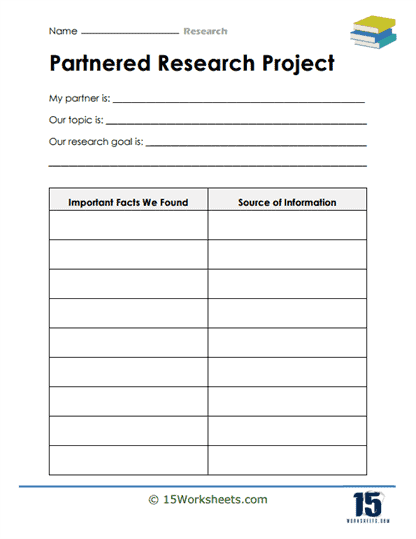
Partnered Project
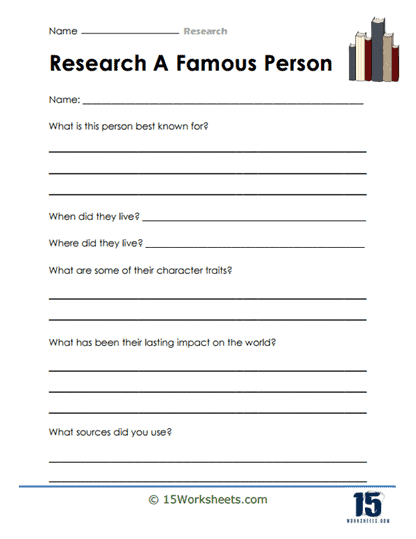
A Famous Person

New Questions

Internet Research
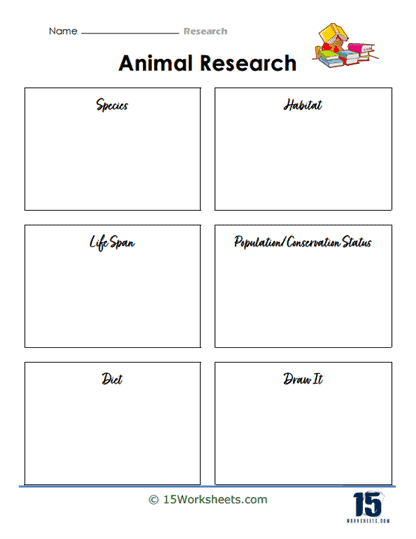
Animal Research
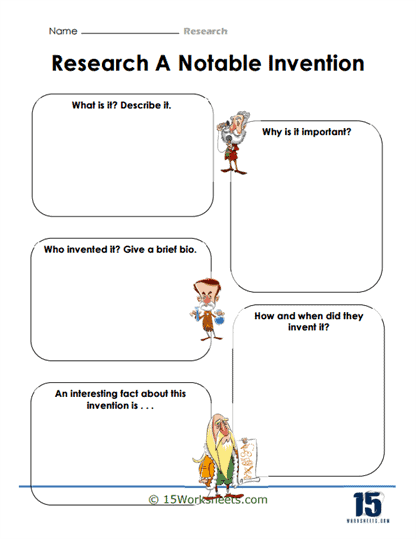
A Notable Invention
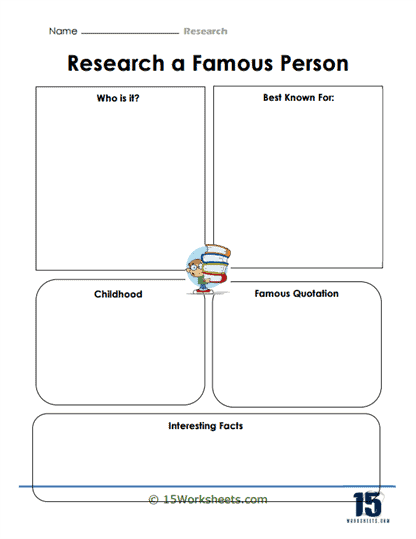
About Someone Popular
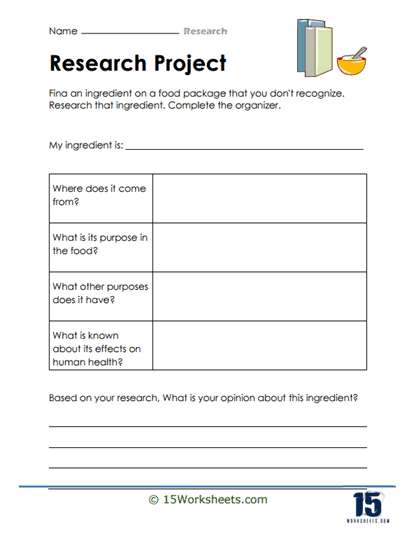
An Unfamiliar Ingredient
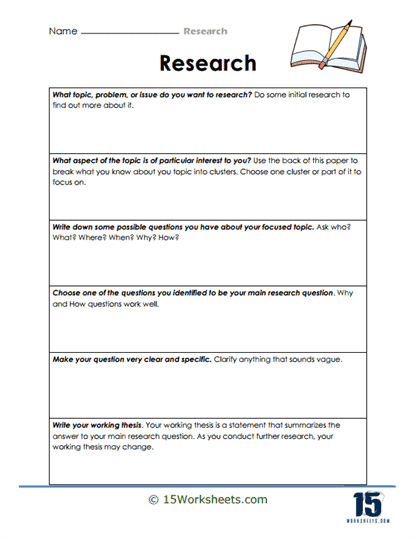
Developing Your Thesis
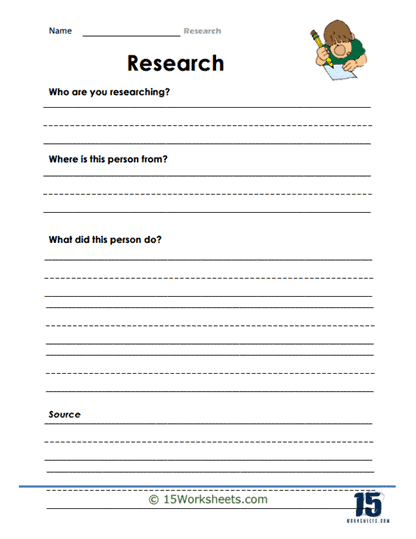
What Did They Do?
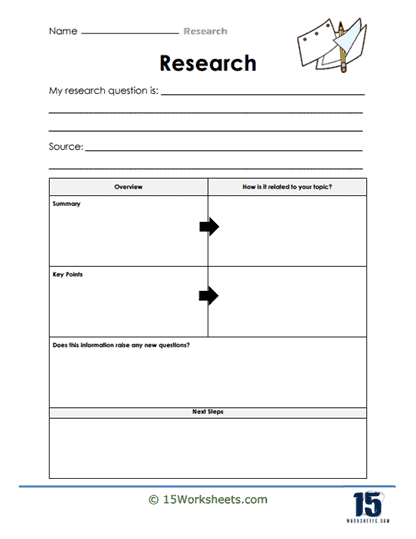
Relation To The Topic
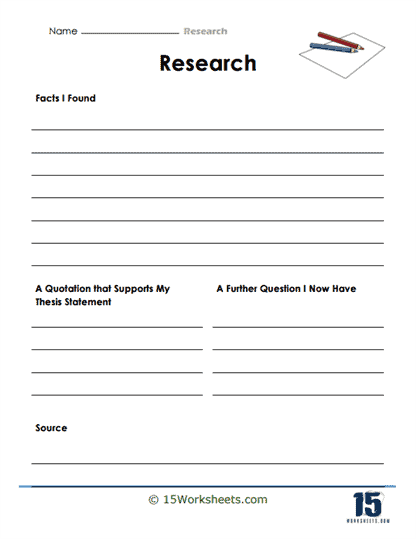
Refining Your Research

Create A Working Thesis
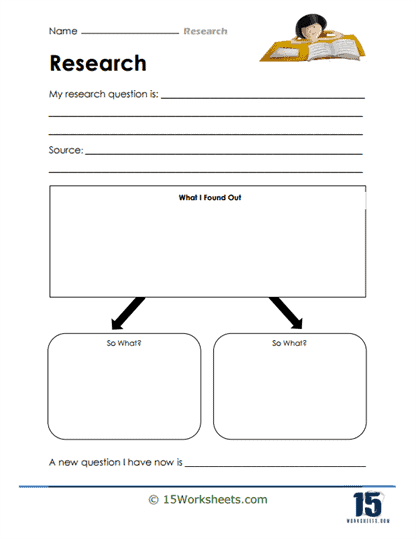
Why Does It Matter?
All about these 15 worksheets.
This series of 15 worksheets on Research is designed to help students develop essential skills for conducting thorough and effective research on various topics. These worksheets cover a wide range of research-related topics, including partnered research projects, researching famous individuals, conducting independent research projects, utilizing internet resources, exploring animal research, and investigating notable inventions.
By engaging with these worksheets, students can enhance their information literacy, critical thinking, and research skills, enabling them to gather and analyze information, synthesize findings, and present their research in a coherent and well-supported manner. Through these worksheets, students will:
- Work in pairs to investigate a specific topic or theme, honing their collaborative research skills;
- Explore various sources, synthesize information, and present their findings in a creative and informative way;
- Be guided through the research process, including selecting a topic, formulating research questions, gathering and analyzing information, and presenting their research in a structured manner;
- Evaluate the credibility of online sources, refine search queries, and navigate through digital information effectively;
- Explore both primary and secondary sources, including scientific journals, books, and documentaries, to gather accurate and reliable information for an Animal Research;
- And critically analyze the significance of their chosen notable invention and present their research findings in a clear and engaging manner.
This series of worksheets on Research offers students a variety of engaging topics to develop and enhance their research skills. By engaging with these worksheets, they can practice gathering information from diverse sources, critically evaluating information, synthesizing findings, and effectively presenting their research. The ability to conduct research is a valuable skill that supports academic success and encourages lifelong learning. Overall, these worksheets provide students with practical guidance and opportunities to explore different research topics, fostering their intellectual curiosity and equipping them with the tools necessary for effective research.
What is Research?
Research is a systematic process of collecting, analyzing, and interpreting information to increase knowledge, solve problems, or answer questions about a specific topic or subject. It is a crucial component of scientific inquiry, academic pursuits, and decision-making processes in various fields, such as social sciences, natural sciences, humanities, medicine, and business.
There are several types of research, including:
Basic Research
Also known as fundamental or pure research, basic research aims to expand knowledge and understanding of a subject or phenomenon without immediate practical application. It seeks to uncover new theories, principles, or concepts that can form the basis for future applied research.
Applied Research
Applied research focuses on using existing knowledge and findings to address specific, practical problems or develop new products, techniques, or solutions. It is often driven by the needs of industries, governments, or other organizations.
Qualitative Research
This type of research explores the underlying reasons, opinions, motivations, or behaviors related to a topic. It relies on non-numerical data, such as interviews, observations, or textual analysis, to gain in-depth understanding and insights.
Quantitative Research
Quantitative research seeks to quantify data and draw conclusions through statistical analysis. It uses numerical data and structured methods, such as surveys, experiments, or questionnaires, to test hypotheses or examine relationships between variables.
Descriptive Research
Descriptive research aims to describe the characteristics of a phenomenon, situation, or population. It may involve the collection of data through observation, surveys, or case studies to provide an accurate representation of the subject being studied.
Experimental Research
In experimental research, researchers manipulate one or more variables to observe their effects on other variables. It is often used to establish cause-and-effect relationships and test the effectiveness of interventions or treatments.
Longitudinal Research
Longitudinal research involves the collection of data over an extended period to examine changes or trends in a particular subject or population. It can help identify patterns, relationships, or causal factors that emerge over time.
Effective research requires a well-defined research question or hypothesis, a systematic approach to data collection and analysis, and the ability to draw valid conclusions based on the evidence gathered. It also involves critical thinking, attention to detail, and adherence to ethical standards to ensure the credibility and reliability of the findings.
How to Improve Your Research Skills
Improving your research skills can enhance your academic performance, problem-solving abilities, and decision-making processes. Here are some tips to help you develop and refine your research skills:
Define Clear Research Questions or Objectives
Begin by identifying a specific topic or issue you want to explore. Develop clear, focused research questions or objectives that guide your research process and help you stay on track.
Familiarize Yourself with Various Research Methods
Learn about different research methodologies, such as qualitative, quantitative, and mixed-methods approaches. Understanding the strengths and limitations of each method will help you choose the most appropriate approach for your research.
Develop a Plan
Create a structured plan outlining your research objectives, methods, data sources, and a timeline for completing your project. This will help you stay organized and ensure you allocate sufficient time and resources for each stage of the research process.
Learn to use a Range of Resources
Become proficient in using various research tools and resources, such as libraries, databases, search engines, and reference materials. Familiarize yourself with both print and digital resources to access the most relevant and up-to-date information.
Refine your Search Skills
Improve your search techniques by using advanced search options, Boolean operators, and filters to locate relevant information more effectively. Learn how to assess the credibility and reliability of sources by examining their authorship, publication date, and affiliations.
Take Notes and Stay Organized
Develop an effective note-taking system that helps you keep track of important information, sources, and ideas. Use tools like spreadsheets, citation managers, or digital notebooks to organize your research materials and make it easier to find and retrieve information when needed.
Analyze and Synthesize Information
Practice critical thinking skills by analyzing, interpreting, and synthesizing the information you gather. Look for patterns, trends, or relationships in the data, and evaluate the quality and relevance of the evidence to support your research questions or objectives.
Communicate your Findings Effectively
Develop strong writing and presentation skills to communicate your research findings clearly and persuasively. This includes organizing your thoughts coherently, using proper citation styles, and presenting your work in a visually engaging manner.
Collaborate
Engage in collaborative research projects, join study groups, or attend workshops and conferences to learn from others and broaden your perspective on research topics.
Seek Feedback and Continuously Learn
Seek feedback from peers, mentors, or instructors to identify areas for improvement and refine your research skills. Continuously update your knowledge and stay informed about new research methods, tools, and best practices in your field.
By following these tips and practicing regularly, you can improve your research skills and become a more effective researcher, which will benefit you in various aspects of your academic, professional, and personal life.
50+ SAMPLE Research Worksheet in PDF | MS Word

Research Worksheet | MS Word
50+ sample research worksheet, what is a research worksheet, general research tips for students and teachers, tips for designing research worksheets, how to create a research worksheet, what is a research worksheet, how do you do research in middle school, how do you teach a high school research paper.
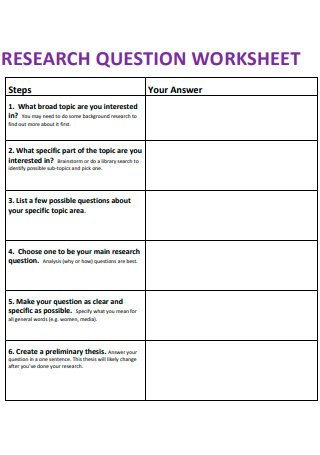
Research Question Worksheet
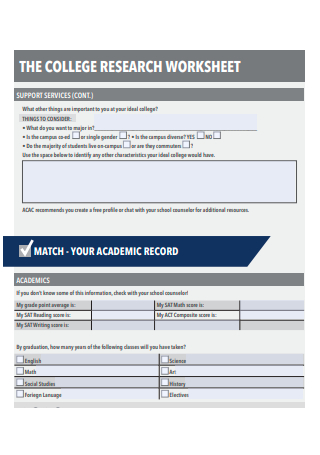
College Research Worksheet
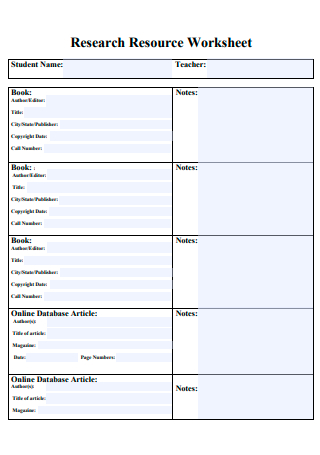
Research Resource Worksheet
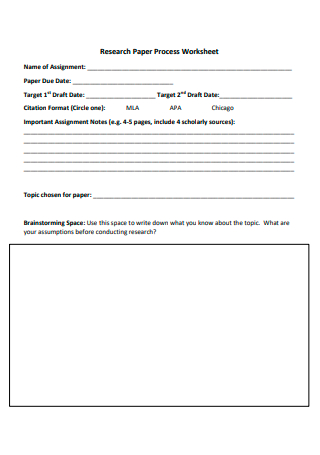
Research Paper Process Worksheet
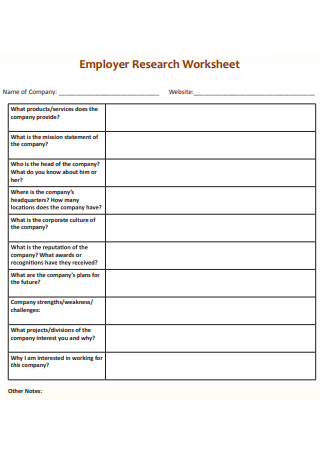
Employer Research Worksheet
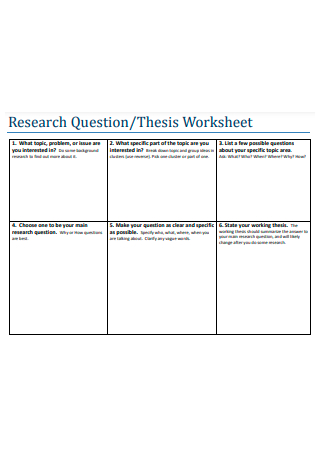
Research Question Thesis Worksheet
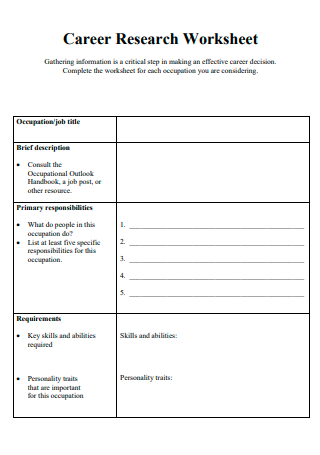
Career Research Worksheet
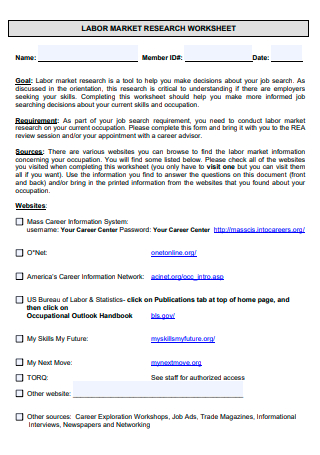
Labor Market Research Worksheet
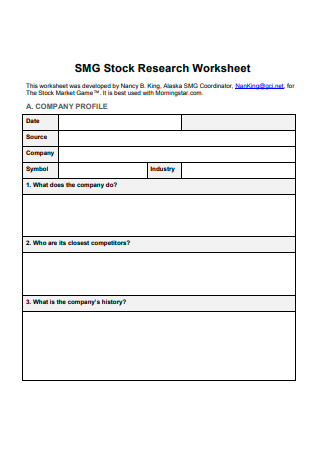
Stock Research Worksheet
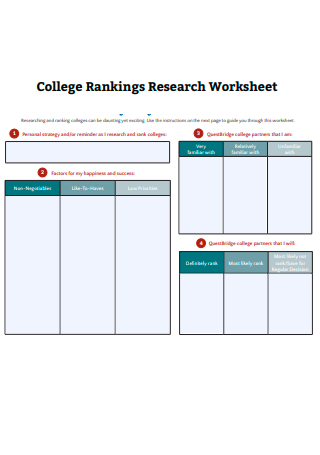
College Rankings Research Worksheet
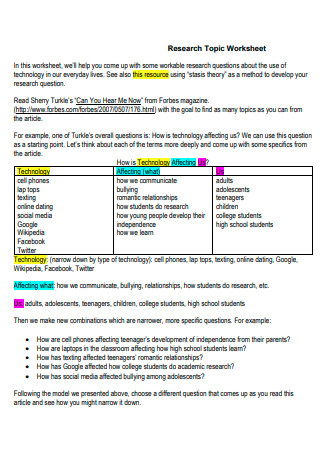
Research Topic Worksheet
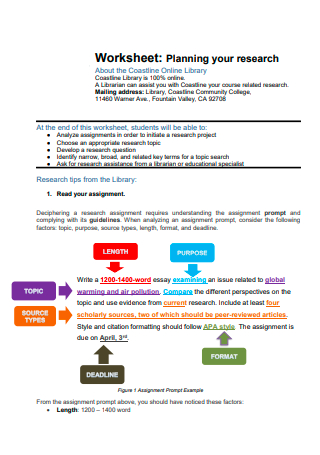
Research Worksheet Planning
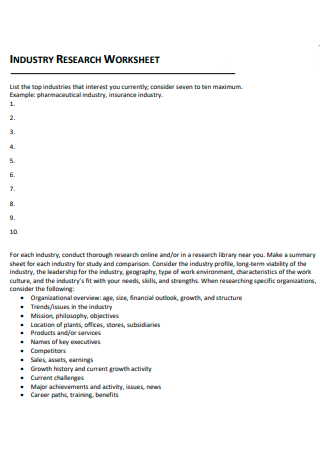
Industry Research Worksheet
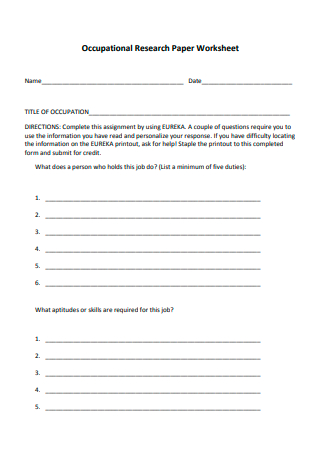
Occupational Research Paper Worksheet
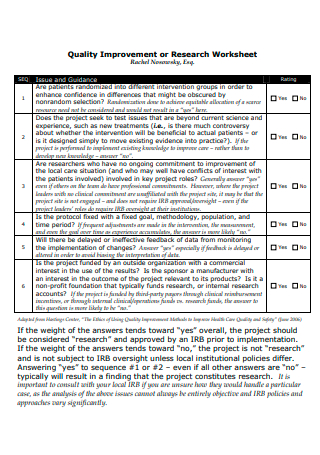
Quality Improvement or Research Worksheet
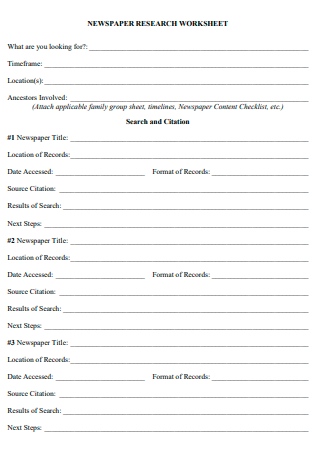
News Paper Research Worksheet
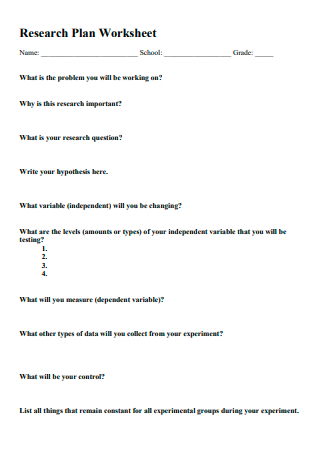
Research Plan Worksheet
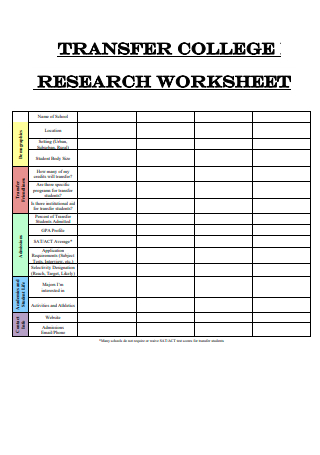
Transfer College Research Worksheet
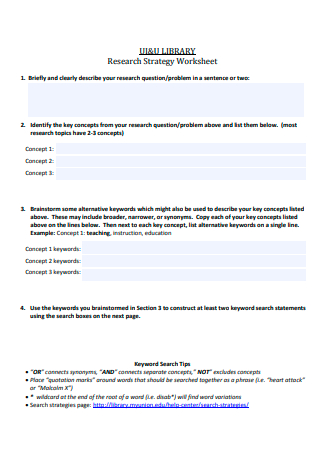
Research Strategy Worksheet
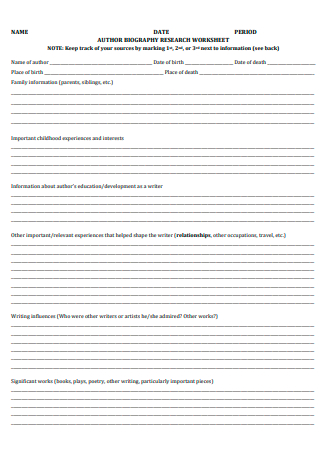
Author Biography Research Worksheet
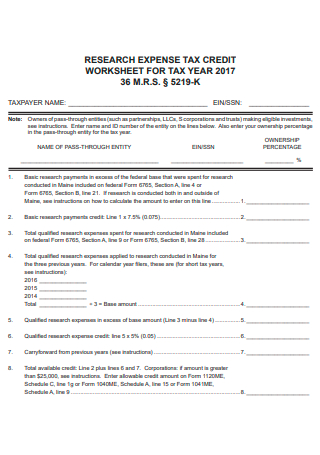
Research Expense Tax Credit Worksheet
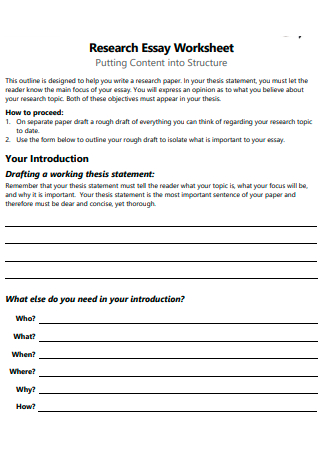
Research Essay Worksheet
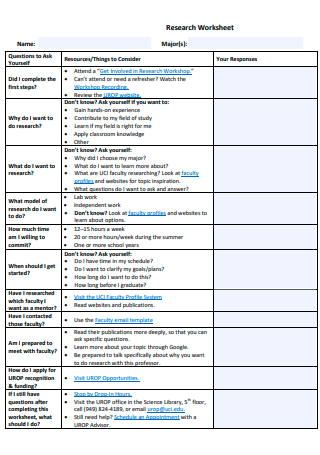
Research Worksheet Example
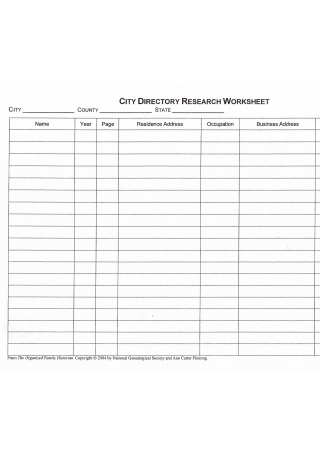
Directory Research Worksheet
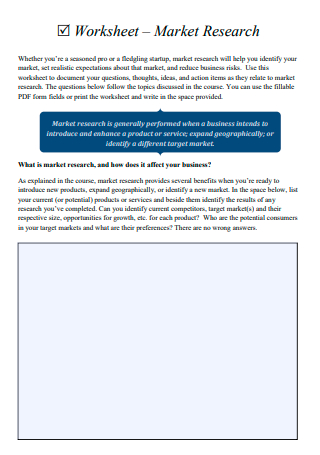
Market Research Worksheet
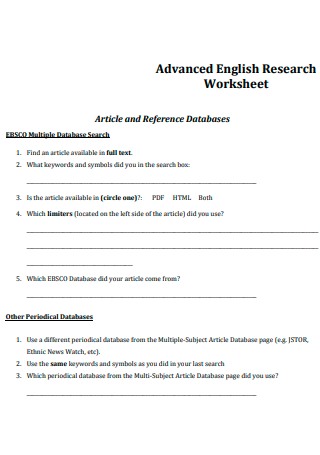
Advanced English Research Worksheet
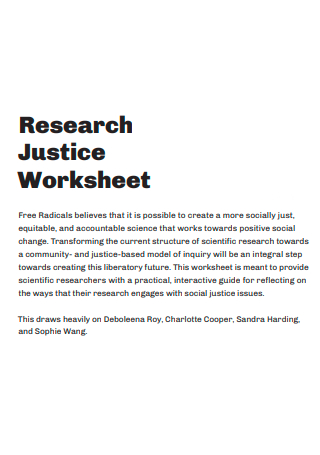
Research Justice Worksheet
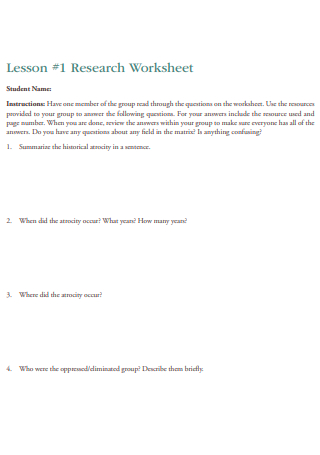
Lesson Research Worksheet
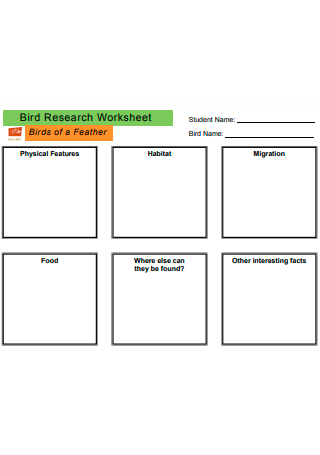
Bird Research Worksheet
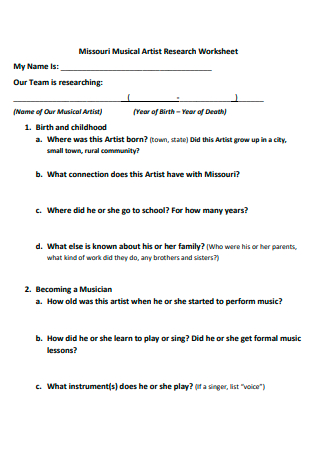
Musical Artist Research Worksheet
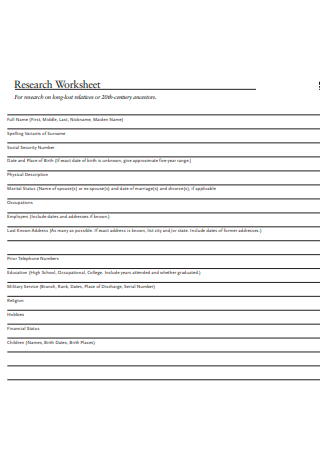
Basic Research Worksheet
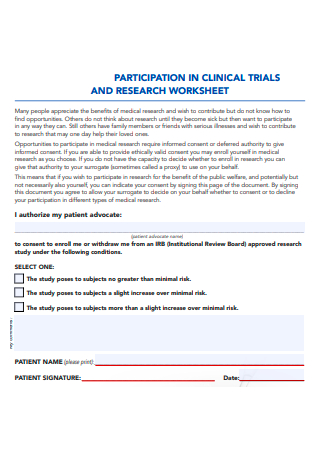
Participation in Clinical Trails and Research Worksheet
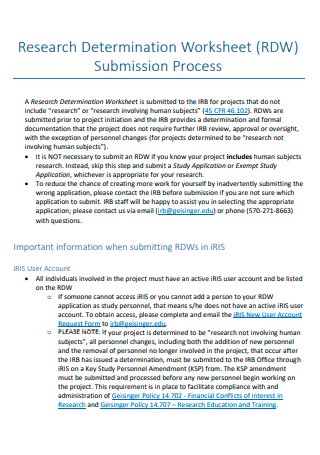
Research Determination Worksheet
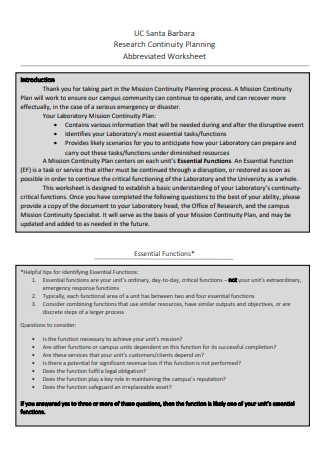
Research Continuity Planning Abbreviated Worksheet
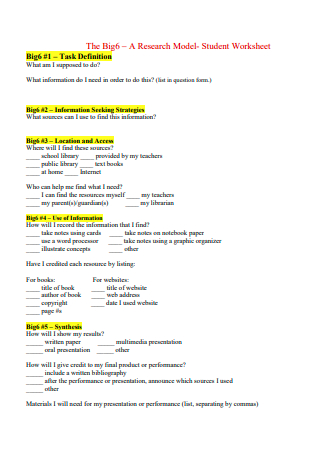
Research Model Student Worksheet
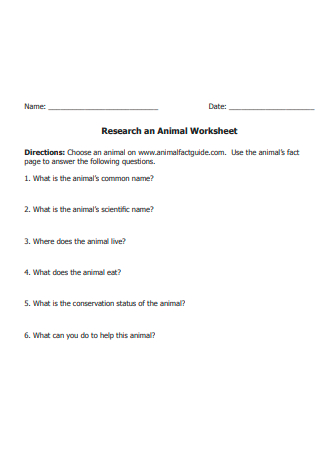
Research Animal Worksheet
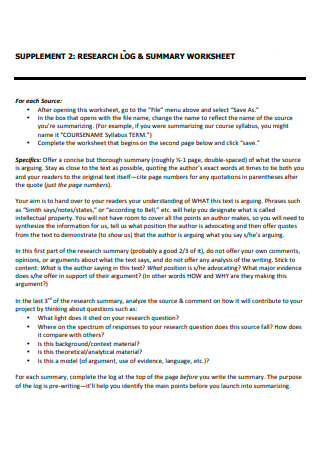
Research Log and Summary Worksheet
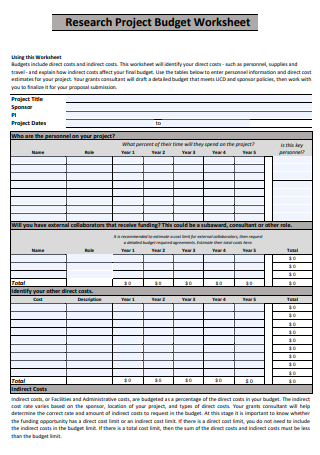
Research Project Budget Worksheet
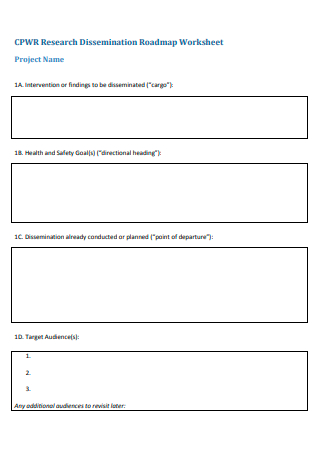
Research Dissemination Roadmap Worksheet
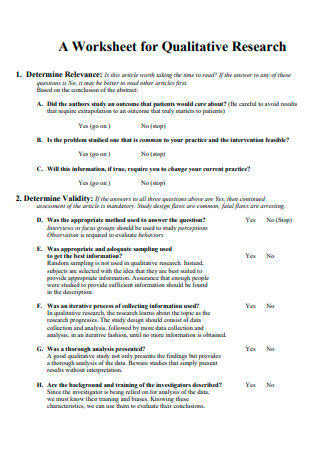
Qualitative Research Worksheet
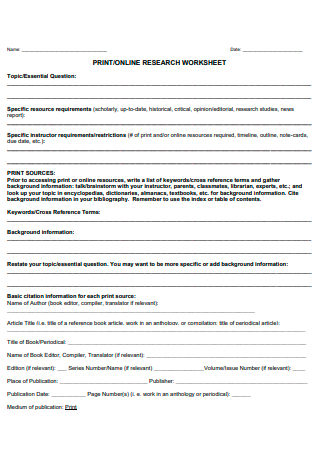
Online Research Worksheet
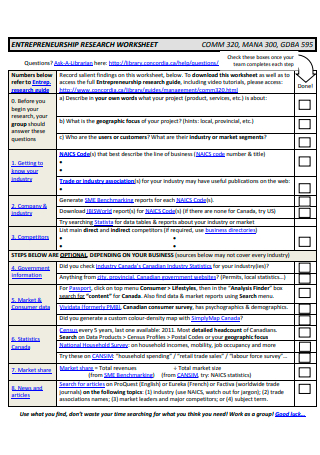
Entrepreneurship Research Worksheet
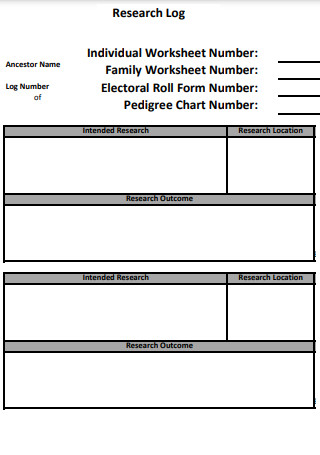
Research Log Worksheet
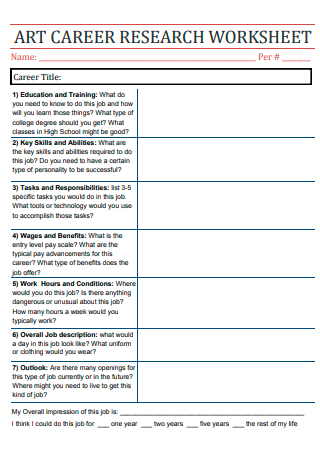
Art Career Research Worksheet
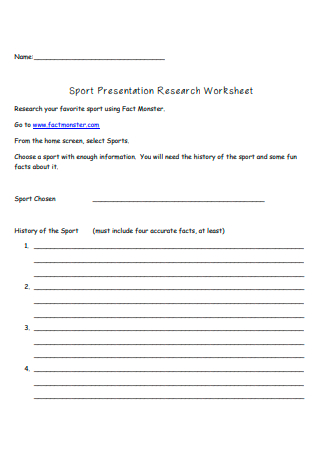
Sport Presentation Research Worksheet
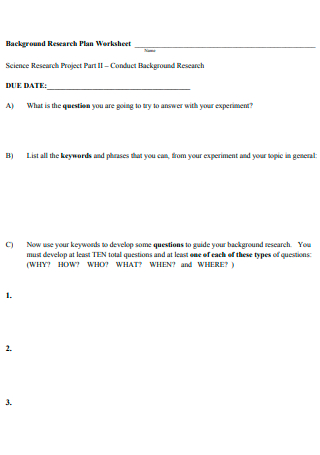
Background Research Plan Worksheet
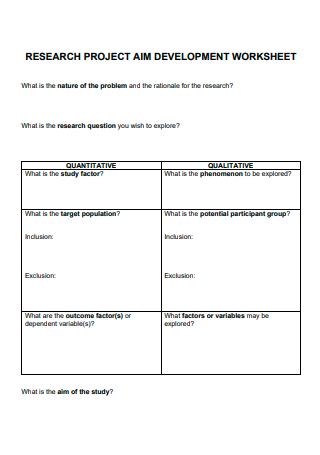
Research Project Aim Development Worksheet
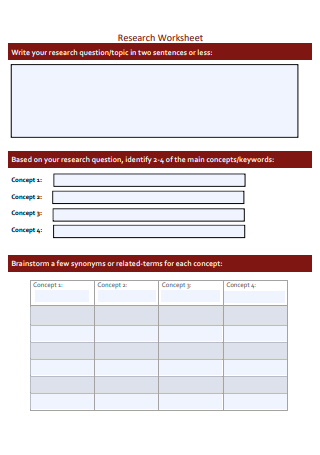
Formal Research Worksheet
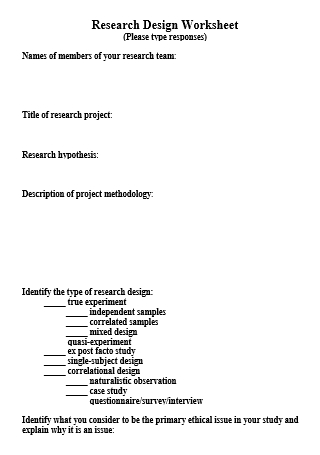
Research Design Worksheet
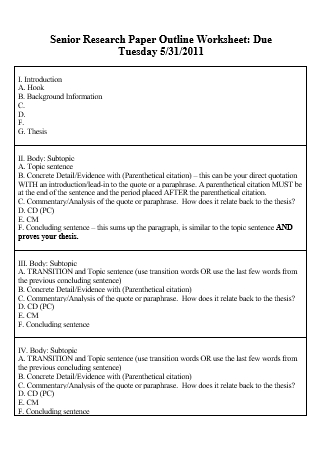
Senior Research Paper Outline Worksheet
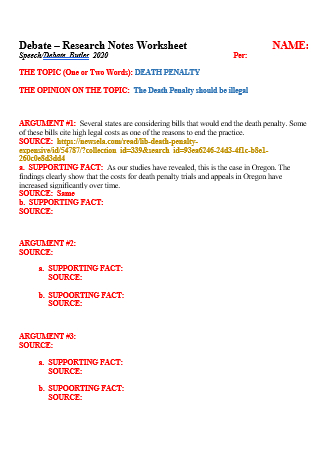
Research Notes Worksheet
Step 1: screen the content , step 2: design the format, step 3: ask the questions, step 4: seek consultation, share this post on your network, you may also like these articles, 30+ sample crossword in pdf | illustrator | ms word | apple pages | photoshop.
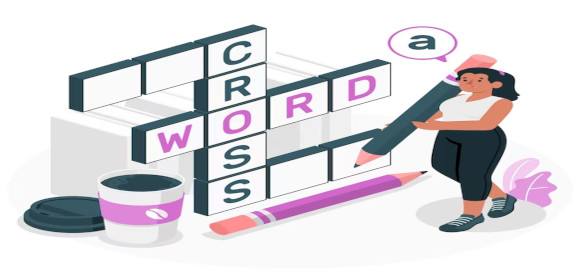
Did you know that engaging in crossword puzzles isn't just a leisure activity but also a valuable tool for enhancing cognitive skills and knowledge retention? According to recent studies…
30+ Sample Solving Equations Worksheet in PDF
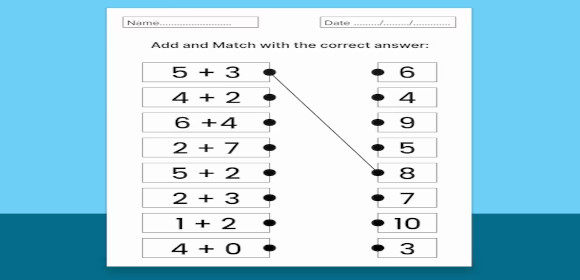
Studies conducted by the National Education Association indicate a staggering 87% of students show improved math proficiency when using interactive materials. Empower 4th-9th grade and high school students with…
browse by categories
- Questionnaire
- Description
- Reconciliation
- Certificate
- Spreadsheet
Information
- privacy policy
- Terms & Conditions

*Research Help*: Research Worksheet
- You Can't Have Just One . . .
Systematic Serendipity
- Get Background Information
Research Worksheet
- Evaluating Resources
- Find Journals
- Theses & Dissertations: Fee & Free
- ILL Request from the Discovery Catalog
- ILL Request from an online database
- Download EBSCO eBooks
- Troubleshoot Access Issues
- Information Timeline
- Style Guides This link opens in a new window
- DDC cf. LC Classification This link opens in a new window
- Search the Library Catalog
- TMU cf. Public Library Databases
- Statewide Library Access
Research Worksheet Printable versions
- Rersearch Worksheet Printable Word document. Feel free to download and print.
- Research Worksheet Printable PDF version. Feel free to download and print.
How to do Research
Read this in conjunction with the Research Worksheet in the next box to develop your research skills; learn to work smarter, not harder; and ensure your research efforts are efficient and effective.
In a phrase, research is the process of “USING SOURCES TO FIND MORE SOURCES” (aka Systematic Serendipity) . Here you will find a brief explanation of the basic steps involved in research while applying this principle.
Select and Focus a Topic :
Select a topic . If you can select your own topic, pick something that is of interest to you and for which there are sufficient resources available. Be careful not to select a topic that is too broad or too narrow but make sure you limit your topic to just one concept. Use this focusing exercise to guide you in the early stages of your search.
Turn your topic into a title . Allow yourself the freedom to change the title, outline and even the topic as your research informs your ideas.
Write a thesis statement or statement of purpose : what one question do you want to answer about this one topic. Asking yourself who, what, when, where and why about the topic will help you focus where you want to go with it.
Develop a Preliminary Outline . Use the keywords from the title and thesis statement as key search terms and as the basis for a preliminary outline. This will help guide you in the early stages of your research. It will inevitably change as you gather information and refocus your topic.
Identify terminology: Make a list of what you already know from off the top of your head: authors, titles, and keywords. Think about synonyms, broader terms, narrower terms and related terms, alternate spellings, scientific or technical terms as well as common terms.
An extremely valuable tool to further assist you in identifying good search terms is the Library of Congress Subject Headings Online (LCSH) <https://id.loc.gov/authorities/subjects.html> search platform. Here you can look up your common, colloquial concepts to find universally recognized subject headings. Also, use LCSH Online to discover how your selected terms fit within their related subject hierarchies (click on <Church work> below).
For example a search for <ministry> leads to <Lay ministry> which in turn retrieves this useful information:
· Variants
· Ministry, Lay
· Volunteer workers in church work
· Broader Terms
· Church work
· Narrower Terms
· Lay preaching
· Lay readers
· Lord's Supper--Lay administration
· Lord's Supper--Lay celebration
· Related Terms
· Laity
· Priesthood, Universal
· Volunteer workers in Christian education
Get Background Information: Get acquainted with your topic by searching broad range tools like encyclopedias and dictionaries. In addition to general information on the subject, these will give you a basic outline, the broad parameters of your topic, a bibliography of highly recommended sources as well as a recognized expert in the field. This will help you focus your research topic as well as enhance your understanding of the topic as you read more detailed resources. The bibliographies and authors of encyclopedia articles are excellent sources for further research, which is a prime example of Systematic Serendipity , i.e., using sources to find more sources . To easily identify encyclopedias and dictionaries on any topic, use the Discovery Catalog with this formula: <su:encyclopedias OR dictionaries> * then whatever your topic, either as a subject or as a keyword. Like this:
su:encyclopedias OR dictionaries AND “lay ministry”
su:encyclopedias OR dictionaries AND kw:”lay ministry”
If you can’t find anything on your specific topic, try searching its broader context (e.g. search the broader concept of “church work” if “lay ministry” doesn’t retrieve any results). Use the LCSH Online to identify broader, narrower, related terminology.
*NOTE : the terms "encyclopedias" and "dictionaries" must be plural; OR must be in all caps
Tools to search . Using the authors, titles and terminology you now have:
Go to the Online Public Access Catalog (OPAC) (i.e. WorldCat Discovery and WorldCat Discovery Advanced to locate library materials related to your topic. Apply “Using sources to find more sources” to your search results (hit list) by examining the Subject field in the Description portion of each record. This will provide more appropriate terms with which to find more relevant resources. When you locate materials that are helpful, use their respective bibliographies to identify even more sources; another example of “Systematic Serendipity”
In addition to searching books, you may want current information not yet published in book form. Periodicals will need to be searched for the most current scholarly information available on a subject. Searching periodical indexes and abstracting sources will identify for you the articles available on your topic. These can be accessed through the Discovery Catalog by limiting the Resource Format to “Articles” or Content Type to “Peer Reviewed”. Better still, use “ Find Databases ” for a more focused search of specialized indexes and databases related to the selected category, i.e., ATLA Religion with Serials Plus, BAS Online, Christian Periodical Index. Use the authors, keywords and subject headings you discovered from your reading of encyclopedia articles, the records that you found in your Discovery catalog search and the bibliographies from the books you’ve discovered.
Recommended Reading for help in Library Research: Badke, William. Research Strategies: Finding Four Way Through the Information Fog, 5 ed. Bloomington, IN: IUniverse, Inc., 2021. ISBN: 9781663218742. Call # 001.42/B142r/2021.
Use the Research Worksheet below to guide the early stages of your research. It is not necessary to fill in all the blanks; use only those that are relevant.
Last updated February 2024.
Use the Research Worksheet to help you walk through each step of the Research Process without losing your way. Each step is designed so you can add any new information that you may find; No need to repeat the same information over and over again. The lines are merely prompts. Include as much or as little information as is needed for the research project.
napkinwriter.wordpress.com 4322 × 2007 February 26, 2013
Select & Focus your Topic 1. Select a topic: ___________________________________________ 2. Turn your topic into a title: _________________________________ 3. Write a thesis/purpose statement: ___________________________ _________________________________________________________ _________________________________________________________
4. Prepare a preliminary outline: I. Introduction II. ___________________________________________________ A. _________________________________________________ B. _________________________________________________ III. __________________________________________________ A. _________________________________________________ B. _________________________________________________ C. _________________________________________________ IV. __________________________________________________ A. __________________________________________________ B. _________________________________________________ V. Conclusion
5. List known terminology: Authors: ______________________________________________ Titles of books or articles: ________________________________ Keywords: ____________________________________________
5.1 LC Subject Headings ( click here to access): select a term(s) representative of your topic and search LCSH Online for universally recognized subject headings. Variants: ______________________________________________ Broader Terms: ________________________________________ Narrower Terms: _______________________________________ Related Terminology: ____________________________________
6. Get background information from general/specialized encyclopedias: Discovery catalog: su:encyclopedias OR dictionaries AND [your topic].
Before you go any further, analyze your search results to retrieve the best sources: Use Analyzing Search Results Worksheet
Titles used: 1. ___________________________________________________ 2. ___________________________________________________ 3. ___________________________________________________ 4. ___________________________________________________ 5. ___________________________________________________
Use Sources to find other sources : Record here any newly discovered pertinent or relevant information gleaned from encyclopedia articles: Persons; article author: _____________________________________________ Places: _________________________________________________________ Events: _________________________________________________________ Keywords: ______________________________________________________
Prepare a Bibliography adding selected titles from encyclopedias & dictionaries; put citations in proper style.
7. Refocus topic based on information learned from encyclopedias and dictionaries as needed: Change Title: ____________________________________________________ Rewrite Thesis/Purpose Statement: __________________________________ _______________________________________________________________ _______________________________________________________________
Adjust Outline: I. Introduction II. _________________________________________________________ A. ________________________________________________________ 1. _______________________________________________________ 2. _______________________________________________________ B. ________________________________________________________ 1. _______________________________________________________ 2. _______________________________________________________ C. ________________________________________________________ 1. _______________________________________________________ 2. _______________________________________________________ III. _________________________________________________________ A. ________________________________________________________ 1. _______________________________________________________ 2. _______________________________________________________ B. ________________________________________________________ 1. _______________________________________________________ 2. _______________________________________________________ C. ________________________________________________________ 1. _______________________________________________________ 2. _______________________________________________________ IV. _________________________________________________________ A. ________________________________________________________ B. ________________________________________________________ C. ________________________________________________________ V. Conclusion
Tools to Search 8. Search the Discovery catalog: use searchable access points identified from 5 & 6 above.
Analyze your search results to retrieve the best sources: Use Analyze Search Results Worksheet
Use Sources to find other sources: Record any new relevant searchable access points gleaned from bibliographic records: Dewey Decimal number(s): _________________________________________ Subject Headings: ___________________________________ Authors: ______________________________________________ Keywords/Descriptors (from Tables of Contents, Notes, Titles): __________________________________
Bibliography : Add selected citations to bibliography (in proper style); very briefly annotate each title; indicate why each title has been chosen and which part of the outline it will support:
9. Select appropriate Periodical Indexes: from the Library’s Web site select Find Databases. Use A-Z Databases list _______________________________________________________ _______________________________________________________ _______________________________________________________
Devise Boolean Search Strategies for each database * and index (as needed): _______________________________________________________ _______________________________________________________
*NOTE : online databases use these field codes: SU , AU ,TI , and TX for subject, author, title and keyword respectively. Include a space after each code and before the search terms.
Apply Limits peculiar to each database and index: _______________________________________________________ _______________________________________________________
Bibliography : Add titles to the bibliography (in proper style); very briefly annotate each title; indicate why each title has been chosen and which part of the outline it will support.
10. Select appropriate Web sites. Use Scholarly Internet Search Engines compiled and maintained by librarians and scholars (work smarter not harder):
11. Use Sources to find other sources: Record any new relevant additional searchable access points gleaned from each article, book, bibliographic record, Web site used: Authors: __________________________________________________ Persons: _________________________________________________ Places: __________________________________________________ Events: __________________________________________________ Keywords: ________________________________________________ DDC/LC numbers: __________________________________________ LC Subject Headings: _______________________________________ Bibliographies; Cited References - add to your own bibliography if useful.
12. Evaluate each resource found (use Evaluating Sources ).
Work smarter not harder. Ask Miss T

- << Previous: Get Background Information
- Next: Evaluating Resources >>
- Last Updated: Aug 29, 2024 12:53 PM
- URL: https://masters.libguides.com/researchhelp
Steps to Writing a Research Paper
Visualize the steps to writing a research paper with this essential guide! You'll fill in the illustrated ladder with each important step needed to complete an A+ paper. When you're done, you'll have a handy reminder for your next research assignment.
View aligned standards
Related guided lesson.

Letter Writing 1
- My Storyboards
Research Writing Templates
Customize research writing templates.
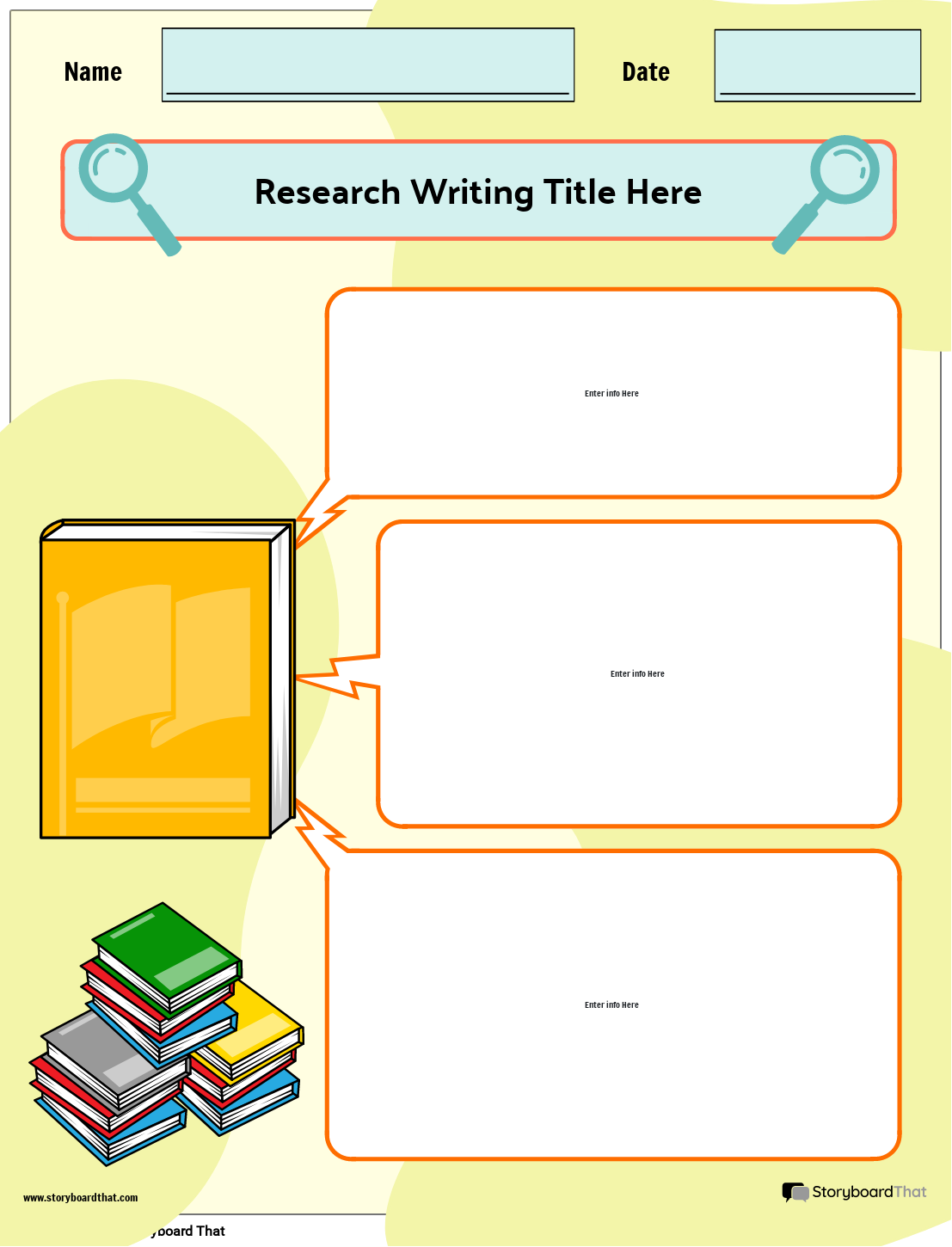
If you're assigning this to your students, copy the worksheet to your account and save. When creating an assignment, just select it as a template!
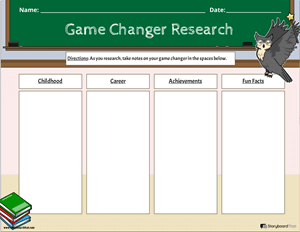
What is Research?
Research is the systematic process of gathering and analyzing information to establish facts, gain knowledge, and draw new conclusions. It involves a methodical approach to collecting data from various sources and critically examining it to generate insights and deepen understanding.
When conducting research, individuals seek to explore a chosen topic or question and find relevant information to answer it. This may involve investigating existing knowledge, gathering data through surveys or experiments, analyzing statistical information, or reviewing scholarly literature. The goal is to uncover new insights, validate existing theories, or contribute to the advancement of knowledge in a particular field.
Collecting information requires careful consideration of reliable sources. These sources can include books, scholarly articles, reputable websites, and expert interviews. By utilizing trustworthy and credible sources, researchers can ensure the accuracy and validity of their findings.
Research allows individuals to go beyond surface-level knowledge and delve into a subject in depth. It involves critically examining different perspectives, analyzing data, and interpreting results to form evidence-based conclusions. Individuals can contribute to the body of knowledge, inform decision-making processes, and make meaningful contributions to their respective fields.
Utilizing Research Worksheets to Improve Research Skills and Enhance Writing Abilities
These skills are essential for students to develop a better understanding of various subjects and effectively explore topics. Our templates offer valuable guidance and resources to assist middle school students in their journey of conducting research and writing papers. They provide a structured framework that helps students navigate the process, explore different subtopics, generate ideas, and avoid plagiarism. By utilizing these worksheets, students can enhance their skills, improve their writing abilities, and gain a deeper understanding of the topics they are studying.
One of the key aspects of the research process is identifying suitable topics. Our templates offer prompts and exercises that help students brainstorm ideas and select topics that align with their interests and academic goals. By engaging in these activities, students can explore various subjects and narrow down their focus to a specific area.
Once students have chosen their topics, the templates guide them through the process of conducting research. They provide helpful tips on utilizing search engines effectively, evaluating the credibility of sources, and organizing information. Kids can use these worksheets to record their findings, take notes, and develop a comprehensive understanding of their chosen topics.
Furthermore, they cater to the unique needs of students by providing age-appropriate activities and resources. They are designed to foster engagement, critical thinking, and independent learning. By utilizing these worksheets, students can develop essential skills that will benefit them not only in their academic journey but also in their future educational pursuits.
In conclusion, research worksheets serve as valuable tools for middle school students to enhance their skills, streamline the process, and gain a better understanding of various topics. By incorporating these handouts into their learning, students can develop valuable skills, foster a deeper appreciation for education, and excel in their academic endeavors.
Examples of Classroom Activities to Use Research Worksheets
- Social Studies Exploration: Introduce students to the world of research by assigning a country project. Provide them with templates that guide them through the process of gathering information about their chosen country. These worksheets can include sections for collecting statistical information, identifying reliable sources, and establishing facts about the country.
- College-Level Research: Prepare middle school students for higher education by incorporating college research worksheets into their curriculum. These worksheets can focus on developing skills such as utilizing search engines effectively, avoiding plagiarism, and critically evaluating sources. Students can practice these skills by exploring different subtopics related to their areas of interest.
- Writing a Research Paper: Help students navigate the process of writing a research paper by providing them with specialized worksheets. These worksheets can assist them in organizing their research, outlining their paper, and citing sources. By using writing a research paper worksheets, students can gain a better understanding of the process and develop strong academic writing skills.
- Interactive Research Activities: Engage students in hands-on activities using printable country research worksheets. These worksheets can include prompts and questions that guide students in collecting specific information about a country, such as its geography, history, culture, and economy. Students can work individually or in groups to complete these activities, fostering collaboration and critical thinking.
In addition, we offer a wide selection of other educational materials to support your teaching. Our worksheet templates section provides a wealth of resources, including phonological awareness activities, making connections worksheets , and active reading worksheet templates . These resources can be seamlessly integrated into your lessons to strengthen students' understanding of cardinal directions while building essential reading and comprehension skills.
How to Make a Research Writing Worksheet
Choose one of the premade templates.
We have lots of templates to choose from. Take a look at our example for inspiration!
Click on “Copy Template”
Once you do this, you will be directed to the storyboard creator.
Give Your Worksheet a Name!
Be sure to call it something related to the topic so that you can easily find it in the future.
Edit Your Worksheet
This is where you will include directions, specific images, and make any aesthetic changes that you would like. The options are endless!
Click "Save and Exit"
When you are finished, click this button in the lower right hand corner to exit your storyboard.
From here you can print, download as a PDF, attach it to an assignment and use it digitally, and more!
Happy Creating!
Frequently Asked Questions About Research Writing Worksheets
Where can i find research worksheets for different topics.
You can find a variety on Storyboard That. They offer activities and college research worksheets that cater to various subjects and grade levels.
Can I use Storyboard That for research activities?
Yes, Storyboard That offers a range of resources and tools to support research activities. We offer handouts and college research worksheets that assist students in organizing their findings, creating visual representations, and writing research papers. Additionally, their free printable country research worksheet is a helpful resource for studying and exploring different countries.
Are the research worksheets from Storyboard That suitable for college-level research?
Yes, Storyboard That offers college research worksheets that are designed to meet the research requirements of college-level students. They cover various aspects of the research process, including topic selection, gathering statistical information, using reliable sources, and drawing new conclusions. They provide a comprehensive framework for conducting thorough research and writing academic papers.
Can I access the research worksheets from Storyboard That for free?
While Storyboard That offers a range of resources and tools, some of the premium content may require a subscription or purchase. However, we also provide free printable country research worksheets and offer trial periods and discounts for educators and students.
Pricing for Schools & Districts
Limited Time
- 10 Teachers for One Year
- 2 Hours of Virtual PD
30 Day Money Back Guarantee • New Customers Only • Full Price After Introductory Offer • Access is for 1 Calendar Year

- Thousands of images
- Custom layouts, scenes, characters
- And so much more!!
Create a Storyboard
Limited Time. New Customers Only
Back to school special!
Purchase orders must be received by 9/6/24.
30 Day Money Back Guarantee. New Customers Only. Full Price After Introductory Offer. Access is for 1 Calendar Year
Generating a Quote
This is usually pretty quick :)
Quote Sent!
Email Sent to
Email Newsletter
Receive free lesson plans, printables, and worksheets by email:
Research Skills Worksheets Listed By Specific Topic Area
Research skills are important to a person's educational, professional, and personal life. Did you ever hear a story, but wasn't sure if it was true? Or maybe you saw a word phrase that you didn't quite understand. Researching helps to locate information, and then use that information logically. It's like solving a problem, and in this case it would be finding out whether that story was true/false or discovering the meaning behind the word phrase that you were not able to understand at first.
We provide a bunch of printable worksheets to help students with their research skills. Students will learn the benefits of using the Internet as a tool for research. We also have pretty cool worksheets to get students interested in the stock market, and to research the ins and outs of the famous Wall Street. It takes students a great deal of time to become proficient at using tools for research. This set of printable worksheets helps students focus and hone these skills.
- Antonyms - Students determine which word is not an antonym.
- Biography Identification - Who might have said these words?
- Choosing Resources - Help students identify reference materials.
- Dictionary Skills - A good warm-up for spelling.
- Do the Research! - A variety of activities for getting students engaged in the research process.
- The Internet - A variety of activities for proper use of the Internet as an educational tool.
- Synonyms - Students determine which word is not an synonym.
- Stock Market - Research the Stock Market.
- Student Reminders - Help organize students with these reminders.
- Study Skills Worksheets - Great for test preparation.
- Using The Parts Of A Book - Learn to navigate a book.

How Students Can Become Better Researchers
The basis of everything we know is research. For students to understand the world around them, they must develop the skill of gathering, organizing, analyzing, and interpreting information. Conducting research will take them a long way in their educational and professional careers. The sheer volume of information available to us due to the rapid rise in technology has made it easier than ever to access information with the click of a button anywhere in the world.
It is also crucial for students to filter out fake information or a mere misrepresentation of facts. Students must be taught how to plan their research in a judicial manner, which will pave the way for them to become better researchers along with better decision-makers and influencers.
When a student has successfully developed the skill of conducting research, they will answer and solve any question or problem that arises. They will not have to look upon their peers and superiors for answers and ultimately become their teachers.
Research requires patience as an essential part of the writing process for students, and without this skill, they are likely to stumble at the first hurdle. Here are a few simple ways to help your students develop better research skills.
1. Be curious and ask more questions
Curiosity instills in us a powerful urge to ask questions and seek answers. By encouraging students to become curious, they will step out of their comfort zones and begin to see the world from a different perspective. A hunger for knowledge makes students better listeners and more receptive to information, ideas and perspectives around them. This will immensely add to their knowledge. There is no right or wrong question, and students must not be discouraged from either. Be patient, help them explore, and reach their conclusions to things.
2. Make the best use of the Internet and other sources
One can never underestimate the sheer volume of data and information that the Internet has in store for us. The foundation of good research is knowing when and how to ask the right questions. Making the best use of search engines like Google and Yahoo can make research easier for students.
A greater volume of data does not necessarily mean that the facts and sources are authentic. Students must gather data from reliable sources and filter out any misleading, deceptive, and ambiguous information. Students must check their facts from multiple sources to validate their authenticity. It is also essential to know how to cite the data gathered from the Internet. The trick is to refine search queries as much as possible, which will increase the chances of the search engine returning information that is more relevant to the research. To get the best possible results from Google or any other search engine, students must use quotation marks around their search words to ensure that the search engine shows results for the entire phrase and not just individual words in the phrase. Another way is to search for reliable and well-known sites by typing the URL in the search bar. Click here for a comprehensive guide on effectively using Google as a research tool.
The Internet is not the only place where students can find a data pool and information. Visiting libraries can be a big stepping stone towards becoming a good researcher. Reading books, magazines, newspapers, and journals add so much to your knowledge. Libraries are the best places for future researchers as they offer the best space for learning and growth. The library staff also helps students locate significant material on their research topics.
3. Establish SMART goals
To conduct any research, students must first establish their desired goal. Then they must ensure that their goals bring together two parameters: structure and tractability. Research goals and objectives should be:
- Specific: Goals must be crisp, precise, and identifiable.
- Measurable: Goals should be trackable and quantifiable. That makes it easier for them to be measured against results.
- Achievable: Goals should be attainable, manageable, and realistic. Students should not have goals that are beyond their capacity.
- Relevant: Ensuring that the goals are important to you.
- Time-bound: The time frame for the goal to be achieved must be specified.
4. Participate in debates
Debating is a powerful tool that helps people exhibit their research power in practical terms. Debates also allow you to think critically. It is a whole experience that will require students to find, analyze their topic, brainstorm ideas, note down the facts and present them in the form of a speech or argument. By dividing the class into groups and assigning topics to them, healthy competition can be made out of it, allowing students to conclude their research in a few lines and improve their power of expression. It will give them confidence and promote future research and critical thinking, which will help them in their education and professional lives.
5. Avoid Plagiarism at all times
Students need to understand that plagiarism raises red flags. If you need to quote someone or use their work, you must know proper citation. There are several citation websites present on the Internet. You can enter the web page URL where you want to use your research. It automatically generates a citation in different styles like APA, Harvard, etc., which you can add to your research. It also adds authenticity to your wiring and gives the reader a good impression. If students are writing essays, they should know how to use quotation marks around quotes to highlight the text they are copying. Hence, concluding that research is not a difficult task if you know how to ask the right questions, organize your information, use credible sources, filter out misleading facts, analyze your data and then present it in a concise and consolidated form. It is also important to remember to ask for feedback from your supervisors or teachers, which will benefit you greatly.
- Chess (Gr. 1-4)
- TV (Gr. 1-4)
- Metal Detectors (Gr. 2-6)
- Tetris (Gr. 2-6)
- Seat Belts (Gr. 2-6)
- The Coliseum (Gr. 2-6)
- The Pony Express (Gr. 2-6)
- Wintertime (Gr. 2-6)
- Reading (Gr. 3-7)
- Black Friday (Gr. 3-7)
- Hummingbirds (Gr. 3-7)
- Worst Game Ever? (Gr. 4-8)
- Carnivorous Plants (Gr. 4-8)
- Google (Gr. 4-8)
- Honey Badgers (Gr. 4-8)
- Hyperinflation (Gr. 4-8)
- Koko (Gr. 4-8)
- Mongooses (Gr. 5-9)
- Trampolines (Gr. 5-9)
- Garbage (Gr. 5-9)
- Maginot Line (Gr. 5-9)
- Asian Carp (Gr. 5-9)
- Tale of Two Countries (Gr. 6-10)
- Kevlar (Gr. 7-10)
- Tigers (Gr. 7-11)
- Statue of Liberty (Gr. 8-10)
- Submarines (Gr. 8-12)
- Castles (Gr. 9-13)
- Gutenberg (Gr. 9-13)
- Author's Purpose Practice 1
- Author's Purpose Practice 2
- Author's Purpose Practice 3
- Fact and Opinion Practice 1
- Fact and Opinion Practice 2
- Fact and Opinion Practice 3
- Idioms Practice Test 1
- Idioms Practice Test 2
- Figurative Language Practice 1
- Figurative Language Practice 2
- Figurative Language Practice 3
- Figurative Language Practice 4
- Figurative Language Practice 5
- Figurative Language Practice 6
- Figurative Language Practice 7
- Figurative Language Practice 8
- Figurative Language Practice 9
- Figurative Language of Edgar Allan Poe
- Figurative Language of O. Henry
- Figurative Language of Shakespeare
- Genre Practice 1
- Genre Practice 2
- Genre Practice 3
- Genre Practice 4
- Genre Practice 5
- Genre Practice 6
- Genre Practice 7
- Genre Practice 8
- Genre Practice 9
- Genre Practice 10
- Irony Practice 1
- Irony Practice 2
- Irony Practice 3
- Making Inferences Practice 1
- Making Inferences Practice 2
- Making Inferences Practice 3
- Making Inferences Practice 4
- Making Inferences Practice 5
- Main Idea Practice 1
- Main Idea Practice 2
- Point of View Practice 1
- Point of View Practice 2
- Text Structure Practice 1
- Text Structure Practice 2
- Text Structure Practice 3
- Text Structure Practice 4
- Text Structure Practice 5
- Story Structure Practice 1
- Story Structure Practice 2
- Story Structure Practice 3
- Author's Purpose
- Characterizations
- Context Clues
- Fact and Opinion
- Figurative Language
- Grammar and Language Arts
- Poetic Devices
- Point of View
- Predictions
- Reading Comprehension
- Story Structure
- Summarizing
- Text Structure
- Character Traits
- Common Core Aligned Unit Plans
- Teacher Point of View
- Teaching Theme
- Patterns of Organization
- Project Ideas
- Reading Activities
- How to Write Narrative Essays
- How to Write Persuasive Essays
- Narrative Essay Assignments
- Narrative Essay Topics
- Persuasive Essay Topics
- Research Paper Topics
- Rubrics for Writing Assignments
- Learn About Sentence Structure
- Grammar Worksheets
- Noun Worksheets
- Parts of Speech Worksheets
- Punctuation Worksheets
- Sentence Structure Worksheets
- Verbs and Gerunds
- Examples of Allitertion
- Examples of Hyperbole
- Examples of Onomatopoeia
- Examples of Metaphor
- Examples of Personification
- Examples of Simile
- Figurative Language Activities
- Figurative Language Examples
- Figurative Language Poems
- Figurative Language Worksheets
- Learn About Figurative Language
- Learn About Poetic Devices
- Idiom Worksheets
- Online Figurative Language Tests
- Onomatopoeia Worksheets
- Personification Worksheets
- Poetic Devices Activities
- Poetic Devices Worksheets
- About This Site
- Privacy Policy
- Terms of Use
- Understanding CCSS Standards
- What's New?
Ereading Worksheets
Free reading worksheets, activities, and lesson plans., site navigation.
- Learn About Author’s Purpose
- Author’s Purpose Quizzes
- Character Types Worksheets and Lessons
- List of Character Traits
- Differentiated Reading Instruction Worksheets and Activities
- Fact and Opinion Worksheets
- Irony Worksheets
- Animal Farm Worksheets
- Literary Conflicts Lesson and Review
- New Home Page Test
- Lord of the Flies Chapter 2 Worksheet
- Lord of the Flies Chapter 5 Worksheet
- Lord of the Flies Chapter 6 Worksheet
- Lord of the Flies Chapter 10 Worksheet
- Narrative of the Life of Frederick Douglass
- Sister Carrie
- The Count of Monte Cristo
- The Odyssey
- The War of the Worlds
- The Wizard of Oz
- Mood Worksheets
- Context Clues Worksheets
- Inferences Worksheets
- Main Idea Worksheets
- Making Predictions Worksheets
- Nonfiction Passages and Functional Texts
- Setting Worksheets
- Summarizing Worksheets and Activities
- Short Stories with Questions
- Story Structure Activities
- Story Structure Worksheets
- Tone Worksheets
- Types of Conflict Worksheets
- Reading Games
- Figurative Language Poems with Questions
- Hyperbole and Understatement Worksheets
- Simile and Metaphor Worksheets
- Simile Worksheets
- Hyperbole Examples
- Metaphor Examples
- Personification Examples
- Simile Examples
- Understatement Examples
- Idiom Worksheets and Tests
- Poetic Devices Worksheets & Activities
- Alliteration Examples
- Allusion Examples
- Onomatopoeia Examples
- Onomatopoeia Worksheets and Activities
- Genre Worksheets
- Genre Activities
- Capitalization Worksheets, Lessons, and Tests
- Contractions Worksheets and Activities
- Double Negative Worksheets
- Homophones & Word Choice Worksheets
- ‘Was’ or ‘Were’
- Simple Subjects & Predicates Worksheets
- Subjects, Predicates, and Objects
- Clauses and Phrases
- Type of Sentences Worksheets
- Sentence Structure Activities
- Comma Worksheets and Activities
- Semicolon Worksheets
- End Mark Worksheets
- Noun Worksheets, Lessons, and Tests
- Verb Worksheets and Activities
- Pronoun Worksheets, Lessons, and Tests
- Adverbs & Adjectives Worksheets, Lessons, & Tests
- Preposition Worksheets and Activities
- Conjunctions Worksheets and Activities
- Interjections Worksheets
- Parts of Speech Activities
- Verb Tense Activities
- Past Tense Worksheets
- Present Tense Worksheets
- Future Tense Worksheets
- Point of View Activities
- Point of View Worksheets
- Teaching Point of View
- Cause and Effect Example Paragraphs
- Chronological Order
- Compare and Contrast
- Order of Importance
- Problem and Solution
- Text Structure Worksheets
- Text Structure Activities
- Essay Writing Rubrics
- Narrative Essay Topics and Story Ideas
- Narrative Essay Worksheets & Writing Assignments
- Persuasive Essay and Speech Topics
- Persuasive Essay Worksheets & Activities
- Writing Narrative Essays and Short Stories
- Writing Persuasive Essays
- All Reading Worksheets
- Understanding Common Core State Standards
- Remote Learning Resources for Covid-19 School Closures
- What’s New?
- Ereading Worksheets | Legacy Versions
- Online Figurative Language Practice
- Online Genre Practice Tests
- Online Point of View Practice Tests
- 62 School Project Ideas
- 2nd Grade Reading Worksheets
- 3rd Grade Reading Worksheets
- 4th Grade Reading Worksheets
- 5th Grade Reading Worksheets
- 6th Grade Reading Worksheets
- 7th Grade Reading Worksheets
- 8th Grade Reading Worksheets
- 9th Grade Reading Worksheets
- 10th Grade Reading Worksheets
- Membership Billing
- Membership Cancel
- Membership Checkout
- Membership Confirmation
- Membership Invoice
- Membership Levels
- Your Profile
Want Updates?
101 research paper topics.
- Why do we sleep ?
- How do GPS systems work?
- Who was the first person to reach the North Pole ?
- Did anybody ever escape Alcatraz ?
- What was life like for a gladiator ?
- What are the effects of prolonged steroid use on the human body?
- What happened during the Salem witch trials ?
- Are there any effective means of repelling insects ?
- How did trains and railroads change life in America?
- What may have occurred during the Roswell UFO incident of 1947?
- How is bulletproof clothing made?
- What Olympic events were practiced in ancient Greece?
- What are the major theories explaining the disappearance of the dinosaurs ?
- How was the skateboard invented and how has it changed over the years?
- How did the long bow contribute to English military dominance?
- What caused the stock market crash of 2008?
- How did Cleopatra come to power in Egypt what did she do during her reign?
- How has airport security intensified since September 11 th , 2001?
- What is life like inside of a beehive ?
- Where did hip hop originate and who were its founders?
- What makes the platypus a unique and interesting mammal?
- How does tobacco use affect the human body?
- How do computer viruses spread and in what ways do they affect computers?
- What is daily life like for a Buddhist monk ?
- What are the origins of the conflict in Darfur ?
- How did gunpowder change warfare?
- In what ways do Wal-Mart stores affect local economies?
- How were cats and dogs domesticated and for what purposes?
- What do historians know about ninjas ?
- How has the music industry been affected by the internet and digital downloading?
- What were the circumstances surrounding the death of Osama Bin Laden ?
- What was the women’s suffrage movement and how did it change America?
- What efforts are being taken to protect endangered wildlife ?
- How much does the war on drugs cost Americans each year?
- How is text messaging affecting teen literacy?
- Are humans still evolving ?
- What technologies are available to home owners to help them conserve energy ?
- How have oil spills affected the planet and what steps are being taken to prevent them?
- What was the Magna Carta and how did it change England?
- What is the curse of the pharaohs?
- Why was Socrates executed?
- What nonlethal weapons are used by police to subdue rioters?
- How does the prison population in America compare to other nations?
- How did ancient sailors navigate the globe?
- Can gamblers ever acquire a statistical advantage over the house in casino games?
- What is alchemy and how has it been attempted?
- How are black holes formed?
- How was the assassination of Abraham Lincoln plotted and executed?
- Do the benefits of vaccination outweigh the risks?
- How do submarines work?
- Do lie detector tests accurately determine truthful statements?
- How did Cold War tension affect the US and the world?
- What happened to the lost settlers at Roanoke ?
- How does a hybrid car save energy?
- What ingredients can be found inside of a hotdog ?
- How did Julius Caesar affect Rome?
- What are some common sleep disorders and how are they treated?
- How did the Freedom Riders change society?
- How is internet censorship used in China and around the world?
- What was the code of the Bushido and how did it affect samurai warriors ?
- What are the risks of artificial tanning or prolonged exposure to the sun?
- What programs are available to help war veterans get back into society?
- What steps are involved in creating a movie or television show?
- How have the film and music industries dealt with piracy ?
- How did Joan of Arc change history?
- What responsibilities do secret service agents have?
- How does a shark hunt?
- What dangers and hardships did Lewis and Clark face when exploring the Midwest?
- Has the Patriot Act prevented or stopped terrorist acts in America?
- Do states that allow citizens to carry guns have higher or lower crime rates?
- How are the Great Depression and the Great Recession similar and different?
- What are the dangers of scuba diving and underwater exploration?
- How does the human brain store and retrieve memories ?
- What was the Manhattan Project and what impact did it have on the world?
- How does stealth technology shield aircraft from radar?
- What causes tornadoes ?
- Why did Martin Luther protest against the Catholic Church?
- How does a search engine work?
- What are the current capabilities and future goals of genetic engineers ?
- How did the Roman Empire fall?
- What obstacles faced scientists in breaking the sound barrier ?
- How did the black plague affect Europe?
- What happened to Amelia Earhart ?
- What are the dangers and hazards of using nuclear power ?
- How did Genghis Khan conquer Persia?
- What architectural marvels were found in Tenochtitlan, capital of the Aztec Empire ?
- From where does spam email come and can we stop it?
- How does night vision work?
- How did journalists influence US war efforts in Vietnam ?
- What are the benefits and hazards of medical marijuana ?
- What causes desert mirages and how do they affect wanderers?
- What was the cultural significance of the first moon landing ?
- What are sinkholes and how are they formed?
- Have any psychics ever solved crimes or prevented them from occurring?
- Who is Vlad the Impaler and what is his connection to Count Dracula ?
- What are the risks of climate change and global warming ?
- What treatments are available to people infected with HIV and are they effective?
- Who was a greater inventor, Leonardo di Vinci or Thomas Edison ?
- How are the Chinese and American economies similar and different?
- Why was communism unsuccessful in so many countries?
- In what ways do video games affect children and teenagers?

923 Comments
I like using this website when I assist kids with learning as a lot of these topics are quickly covered in the school systems. Thankyou
Mackenah Nicole Molina
Wow! I always have trouble deiciding what to do a research project on but this list has totally solved that. Now my only problem is choosing what idea on this list I should do first!
Most of these my teacher rejected because apparently ‘these aren’t grade level topics, and I doubt they interest you”
I’m sorry to hear that. Sounds like you will have a potentially valuable character-building experience in the short-term.
Edwin Augusto Galindo Cuba
THIS SITE IS AWESOME, THERE ARE LOTS OF TOPICS TO LEARN AND MASTER OUR SKILLS!
research kid
I need one about animals, please. I have been challenged to a animal research project, Due Friday. I have no clue what to research! somebody help, thanks for reading!
You can do one on bats
For international studies you can do Defense and Security.
This was very helpful.
Research on Ben Franklin? I think THAT will get a real charge out of everyone (hehehehegetit)
Mandy Maher
“Is it possible to colonize Mars?”
maddy burney
these are silly topics
thx for making this real.
more gaming questions!!!!!!
Is it still considered stealing if you don’t get caught?
Yes, yes it is still considered stealing.
I need topics on memes
Mary Nnamani
Please I need project topics on Language Literature
Marcella Vallarino
I would appreciate a list of survey questions for middle school grades 6-8
I need a research topics about public sector management
I NEED FIVE EXAMPLES EACH ON QUALITATIVE AND QUANTITATIVE RESEARCH (EDUCATION, HEALTH, TECHNOLOGY, ECONOMY AND ENGINEERING)
publish research that are interesting please……
hey can you do one on the burmiueda triangle
Anybody know video games effect kids,and,teens. There Fun!!
they’re
I need a topic about woman history if any of u can find 1 please that would be great!
You could research about the history of the astronauts, and of human past (WWI, WWII, etc.)
so about women? Manitoba Women Win the Right to Vote in Municipal Elections, The First Women, January 23, 1849: Elizabeth Blackwell becomes the first woman to graduate from medical school and become a doctor in the United States, Rosa Parks Civil Rights Equal Pay. I have way more. so if you need more just ask.
communism is good
what are you a communist?!?!
Did FDR know about the upcoming attack on Pearl Harbor on 07 DEC 1941.
do you know how babies are born
Christine Singu
kindly assist with a research topic in the field of accounting or auditing
need more about US army
Please can yiu give me a topic in education
I think one should be how can music/Video games can affect the life for people
or How Do Video Games Affect Teenagers?
zimbabwe leader
I think a good topic is supporting the confederate flag!
Need a research topic within the context of students union government and dues payments
do more weird ones plz
joyce alcantara
Hi pls po can you give me a topic relate for humanities pls thank u.
Leave a Reply Cancel reply
Your email address will not be published. Required fields are marked *
Subscribe Now
Popular content.
- Author's Purpose Worksheets
- Characterization Worksheets
- Common Core Lesson and Unit Plans
- Online Reading Practice Tests
- Plot Worksheets
- Reading Comprehension Worksheets
- Summary Worksheets
- Theme Worksheets
New and Updated Pages
- Capitalization Worksheets
- Contractions Worksheets
- Double Negatives Worksheets
- Homophones & Word Choice Worksheets
BECOME A MEMBER!
- Rating Count
- Price (Ascending)
- Price (Descending)
- Most Recent
Research worksheets
Resource type.
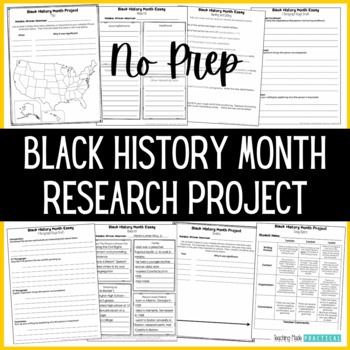
Black History Month Project - Research , Essay, Report Template, Worksheets

Career Research Project with Worksheets and Sample

Ancient Greece Unit Introduction Research Activity | Worksheet + Digital Version
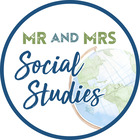
World Geography Landforms Research Worksheets Project Templates Bulletin Board

Solar System Planets Research Project - Planets Coloring Pages and Worksheets

College Research Pennant Project With Worksheet

USA States Research Report Activity Projects | United States Regions Worksheets

Country Research Report Worksheets and Graphic Organizers Google Slides

Ancient Rome Unit Introduction Research Activity | Worksheet + Digital Version
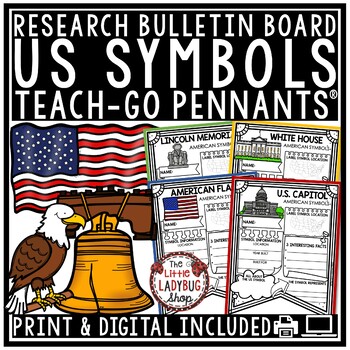
United States American US Symbols Activity Worksheets Research Templates
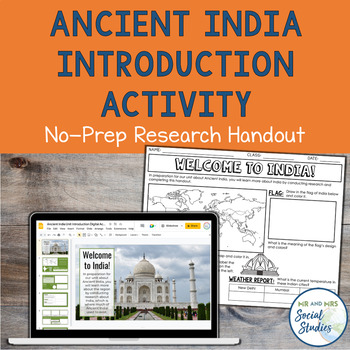
Ancient India Unit Introduction Research Activity | Worksheet + Digital Version
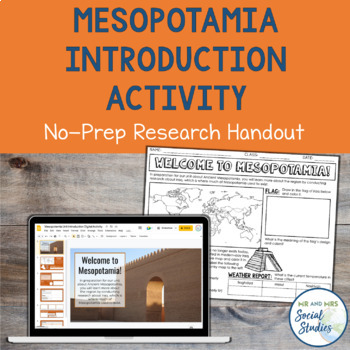
Ancient Mesopotamia Unit Introduction Research Activity | Worksheet + Digital
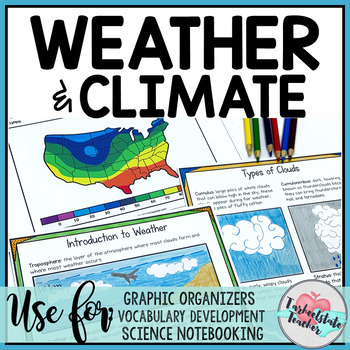
Weather and Climate Worksheets Student Notebook Research Graphic Organizers

Ancient Egypt Unit Introduction Research Activity | Worksheet + Digital Version
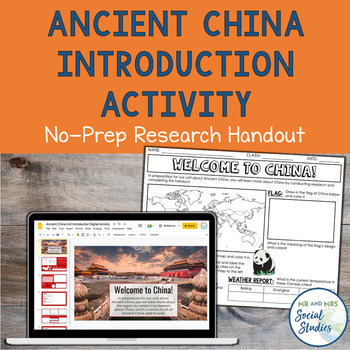
Ancient China Unit Introduction Research Activity | Worksheet + Digital Version
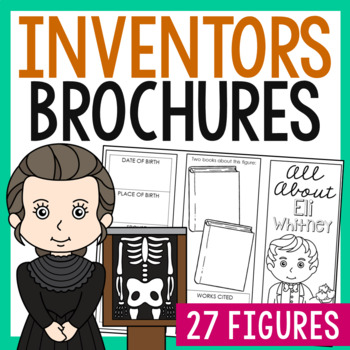
FAMOUS INVENTORS Research Projects | Biography Report Activity Worksheets
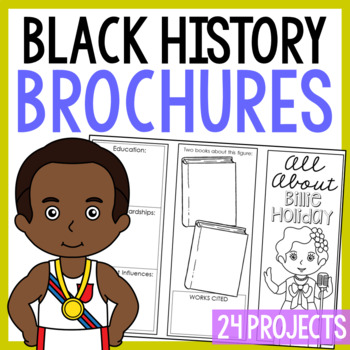
BLACK HISTORY MONTH Research Projects | Biography Report Activity Worksheets

Career Day Research Worksheet , Display & Name Tags

Animal Research Report | Animal Research Project | Writing Templates, Worksheets

Changing Landforms Research Project Activity - Weathering and Erosion Worksheets
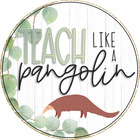
7 World Continents Worksheets Activities Research Report Templates Geography
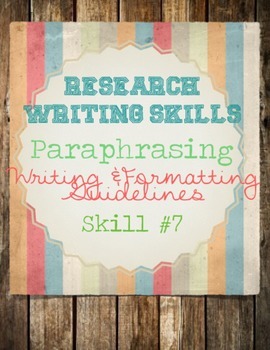
Research Skills: Paraphrasing and Practice Worksheet

Animal Adaptations Informational Reading and Science Research Project Worksheets

Online Research Skills Unit Digital Worksheets and Modules
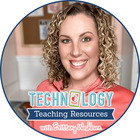
- We're hiring
- Help & FAQ
- Privacy policy
- Student privacy
- Terms of service
- Tell us what you think
Have a language expert improve your writing
Run a free plagiarism check in 10 minutes, generate accurate citations for free.
- Knowledge Base
- Research paper
How to Write a Research Paper | A Beginner's Guide
A research paper is a piece of academic writing that provides analysis, interpretation, and argument based on in-depth independent research.
Research papers are similar to academic essays , but they are usually longer and more detailed assignments, designed to assess not only your writing skills but also your skills in scholarly research. Writing a research paper requires you to demonstrate a strong knowledge of your topic, engage with a variety of sources, and make an original contribution to the debate.
This step-by-step guide takes you through the entire writing process, from understanding your assignment to proofreading your final draft.
Instantly correct all language mistakes in your text
Upload your document to correct all your mistakes in minutes

Table of contents
Understand the assignment, choose a research paper topic, conduct preliminary research, develop a thesis statement, create a research paper outline, write a first draft of the research paper, write the introduction, write a compelling body of text, write the conclusion, the second draft, the revision process, research paper checklist, free lecture slides.
Completing a research paper successfully means accomplishing the specific tasks set out for you. Before you start, make sure you thoroughly understanding the assignment task sheet:
- Read it carefully, looking for anything confusing you might need to clarify with your professor.
- Identify the assignment goal, deadline, length specifications, formatting, and submission method.
- Make a bulleted list of the key points, then go back and cross completed items off as you’re writing.
Carefully consider your timeframe and word limit: be realistic, and plan enough time to research, write, and edit.
Scribbr Citation Checker New
The AI-powered Citation Checker helps you avoid common mistakes such as:
- Missing commas and periods
- Incorrect usage of “et al.”
- Ampersands (&) in narrative citations
- Missing reference entries

There are many ways to generate an idea for a research paper, from brainstorming with pen and paper to talking it through with a fellow student or professor.
You can try free writing, which involves taking a broad topic and writing continuously for two or three minutes to identify absolutely anything relevant that could be interesting.
You can also gain inspiration from other research. The discussion or recommendations sections of research papers often include ideas for other specific topics that require further examination.
Once you have a broad subject area, narrow it down to choose a topic that interests you, m eets the criteria of your assignment, and i s possible to research. Aim for ideas that are both original and specific:
- A paper following the chronology of World War II would not be original or specific enough.
- A paper on the experience of Danish citizens living close to the German border during World War II would be specific and could be original enough.
Note any discussions that seem important to the topic, and try to find an issue that you can focus your paper around. Use a variety of sources , including journals, books, and reliable websites, to ensure you do not miss anything glaring.
Do not only verify the ideas you have in mind, but look for sources that contradict your point of view.
- Is there anything people seem to overlook in the sources you research?
- Are there any heated debates you can address?
- Do you have a unique take on your topic?
- Have there been some recent developments that build on the extant research?
In this stage, you might find it helpful to formulate some research questions to help guide you. To write research questions, try to finish the following sentence: “I want to know how/what/why…”
A thesis statement is a statement of your central argument — it establishes the purpose and position of your paper. If you started with a research question, the thesis statement should answer it. It should also show what evidence and reasoning you’ll use to support that answer.
The thesis statement should be concise, contentious, and coherent. That means it should briefly summarize your argument in a sentence or two, make a claim that requires further evidence or analysis, and make a coherent point that relates to every part of the paper.
You will probably revise and refine the thesis statement as you do more research, but it can serve as a guide throughout the writing process. Every paragraph should aim to support and develop this central claim.
Receive feedback on language, structure, and formatting
Professional editors proofread and edit your paper by focusing on:
- Academic style
- Vague sentences
- Style consistency
See an example

A research paper outline is essentially a list of the key topics, arguments, and evidence you want to include, divided into sections with headings so that you know roughly what the paper will look like before you start writing.
A structure outline can help make the writing process much more efficient, so it’s worth dedicating some time to create one.
Your first draft won’t be perfect — you can polish later on. Your priorities at this stage are as follows:
- Maintaining forward momentum — write now, perfect later.
- Paying attention to clear organization and logical ordering of paragraphs and sentences, which will help when you come to the second draft.
- Expressing your ideas as clearly as possible, so you know what you were trying to say when you come back to the text.
You do not need to start by writing the introduction. Begin where it feels most natural for you — some prefer to finish the most difficult sections first, while others choose to start with the easiest part. If you created an outline, use it as a map while you work.
Do not delete large sections of text. If you begin to dislike something you have written or find it doesn’t quite fit, move it to a different document, but don’t lose it completely — you never know if it might come in useful later.
Paragraph structure
Paragraphs are the basic building blocks of research papers. Each one should focus on a single claim or idea that helps to establish the overall argument or purpose of the paper.
Example paragraph
George Orwell’s 1946 essay “Politics and the English Language” has had an enduring impact on thought about the relationship between politics and language. This impact is particularly obvious in light of the various critical review articles that have recently referenced the essay. For example, consider Mark Falcoff’s 2009 article in The National Review Online, “The Perversion of Language; or, Orwell Revisited,” in which he analyzes several common words (“activist,” “civil-rights leader,” “diversity,” and more). Falcoff’s close analysis of the ambiguity built into political language intentionally mirrors Orwell’s own point-by-point analysis of the political language of his day. Even 63 years after its publication, Orwell’s essay is emulated by contemporary thinkers.
Citing sources
It’s also important to keep track of citations at this stage to avoid accidental plagiarism . Each time you use a source, make sure to take note of where the information came from.
You can use our free citation generators to automatically create citations and save your reference list as you go.
APA Citation Generator MLA Citation Generator
The research paper introduction should address three questions: What, why, and how? After finishing the introduction, the reader should know what the paper is about, why it is worth reading, and how you’ll build your arguments.
What? Be specific about the topic of the paper, introduce the background, and define key terms or concepts.
Why? This is the most important, but also the most difficult, part of the introduction. Try to provide brief answers to the following questions: What new material or insight are you offering? What important issues does your essay help define or answer?
How? To let the reader know what to expect from the rest of the paper, the introduction should include a “map” of what will be discussed, briefly presenting the key elements of the paper in chronological order.
The major struggle faced by most writers is how to organize the information presented in the paper, which is one reason an outline is so useful. However, remember that the outline is only a guide and, when writing, you can be flexible with the order in which the information and arguments are presented.
One way to stay on track is to use your thesis statement and topic sentences . Check:
- topic sentences against the thesis statement;
- topic sentences against each other, for similarities and logical ordering;
- and each sentence against the topic sentence of that paragraph.
Be aware of paragraphs that seem to cover the same things. If two paragraphs discuss something similar, they must approach that topic in different ways. Aim to create smooth transitions between sentences, paragraphs, and sections.
The research paper conclusion is designed to help your reader out of the paper’s argument, giving them a sense of finality.
Trace the course of the paper, emphasizing how it all comes together to prove your thesis statement. Give the paper a sense of finality by making sure the reader understands how you’ve settled the issues raised in the introduction.
You might also discuss the more general consequences of the argument, outline what the paper offers to future students of the topic, and suggest any questions the paper’s argument raises but cannot or does not try to answer.
You should not :
- Offer new arguments or essential information
- Take up any more space than necessary
- Begin with stock phrases that signal you are ending the paper (e.g. “In conclusion”)
There are four main considerations when it comes to the second draft.
- Check how your vision of the paper lines up with the first draft and, more importantly, that your paper still answers the assignment.
- Identify any assumptions that might require (more substantial) justification, keeping your reader’s perspective foremost in mind. Remove these points if you cannot substantiate them further.
- Be open to rearranging your ideas. Check whether any sections feel out of place and whether your ideas could be better organized.
- If you find that old ideas do not fit as well as you anticipated, you should cut them out or condense them. You might also find that new and well-suited ideas occurred to you during the writing of the first draft — now is the time to make them part of the paper.
The goal during the revision and proofreading process is to ensure you have completed all the necessary tasks and that the paper is as well-articulated as possible. You can speed up the proofreading process by using the AI proofreader .
Global concerns
- Confirm that your paper completes every task specified in your assignment sheet.
- Check for logical organization and flow of paragraphs.
- Check paragraphs against the introduction and thesis statement.
Fine-grained details
Check the content of each paragraph, making sure that:
- each sentence helps support the topic sentence.
- no unnecessary or irrelevant information is present.
- all technical terms your audience might not know are identified.
Next, think about sentence structure , grammatical errors, and formatting . Check that you have correctly used transition words and phrases to show the connections between your ideas. Look for typos, cut unnecessary words, and check for consistency in aspects such as heading formatting and spellings .
Finally, you need to make sure your paper is correctly formatted according to the rules of the citation style you are using. For example, you might need to include an MLA heading or create an APA title page .
Scribbr’s professional editors can help with the revision process with our award-winning proofreading services.
Discover our paper editing service
Checklist: Research paper
I have followed all instructions in the assignment sheet.
My introduction presents my topic in an engaging way and provides necessary background information.
My introduction presents a clear, focused research problem and/or thesis statement .
My paper is logically organized using paragraphs and (if relevant) section headings .
Each paragraph is clearly focused on one central idea, expressed in a clear topic sentence .
Each paragraph is relevant to my research problem or thesis statement.
I have used appropriate transitions to clarify the connections between sections, paragraphs, and sentences.
My conclusion provides a concise answer to the research question or emphasizes how the thesis has been supported.
My conclusion shows how my research has contributed to knowledge or understanding of my topic.
My conclusion does not present any new points or information essential to my argument.
I have provided an in-text citation every time I refer to ideas or information from a source.
I have included a reference list at the end of my paper, consistently formatted according to a specific citation style .
I have thoroughly revised my paper and addressed any feedback from my professor or supervisor.
I have followed all formatting guidelines (page numbers, headers, spacing, etc.).
You've written a great paper. Make sure it's perfect with the help of a Scribbr editor!
Open Google Slides Download PowerPoint
Is this article helpful?
Other students also liked.
- Writing a Research Paper Introduction | Step-by-Step Guide
- Writing a Research Paper Conclusion | Step-by-Step Guide
- Research Paper Format | APA, MLA, & Chicago Templates
More interesting articles
- Academic Paragraph Structure | Step-by-Step Guide & Examples
- Checklist: Writing a Great Research Paper
- How to Create a Structured Research Paper Outline | Example
- How to Write a Discussion Section | Tips & Examples
- How to Write Recommendations in Research | Examples & Tips
- How to Write Topic Sentences | 4 Steps, Examples & Purpose
- Research Paper Appendix | Example & Templates
- Research Paper Damage Control | Managing a Broken Argument
- What Is a Theoretical Framework? | Guide to Organizing
What is your plagiarism score?
- Grade Levels
- Search Site
Research Skills Worksheets
This is a vital skill to any job or project worth having in the real world. We expect to see the concept and process of research being emphasized much more in education at all levels.
In just about any job having solid and actionable research skills make the different between being a leader and being a follower. Researching skills are now more needed than ever with all the media that we constantly and involuntarily taking in. What is real and what is fake? If you can use your skills to find out the truth, you will be in high demand in the future. These worksheets will help develop those research skills for all your students.
Answering Research Focused Questions - This is a great exercise to dive into with your students before you start working on full blown projects.
Conflicting Information - How do you weigh which is a better source? We focus ourselves on validating sources and differentiating between them.
Conflicting Viewpoints - We explore how to completely avoid this when are creating your own work.
Gather Relevant Search Information - A great section to learn how to develop a set of background information and see what has already been explored with your topic.
Grade 3 Research Projects - A good time to get your feet wet with the basics.
Grade 4 Research Projects - The focus here is on planning.
Grade 5 Research Projects - We start asking students to examine a great deal more material.
Grade 6 Research Skills - This is the first time that we are letting students completely loose on the entire project.
Grade 8 Research Projects - There is a fold over between this series and grade 7 work. This is where students begin to take flight with the topic.
Grade 9 Research Projects - These are full on projects at the high school level that we ask students to get after.
Experiential Writing - This form of writing finds itself being monumentally helpful when we are exploring the results and discussion section.
MLA Citations - This is one of the most popular forms of listed and stating the resources that were used. We explain it in entirety.
Shared Research Writing Projects - These are done by complete group and each of the participants has their own distinct set of tasks.
Shared Research and Writing Projects (Kindergarten) - These are very basic in nature and are great for getting into the spirit of inquiry.
Sorting Evidence When Writing - It is all about determining which of the facts speaks volumes to support your thesis.
Technology Assisted Writing - A must for when you are composing your final product. Yes, some people still handwrite their first draft.
Using Dictionaries and Glossaries - When you run into terms that you may be unfamiliar with. We explore the quickest method for using these tools.
Using Evidence to Support Claims - We explore how to heighten your argument so that it is practically a no brainer.
Using Multiple Sources For Writing - Where do you get them and how do you cite them?
Using Reference Tools to Find Answers - Take some time to scrutinize all the different tools that you have at your disposal.
Using Text and Search Features - This is helpful for when you are looking for specific pieces of evidence that you may discount along the way.
Validating Arguments - We approach this from many different angles and give you time to get after it.
Writing a Research Paper - We help you put it all together in this comprehensive section.
How to Improve Your Research Skills
At some point in your academic life, you will be asked to investigate and probe a specific topic. Good research skills will make your article stand out. Here are some tips that will help you in improving your investigation skills.
Ask Good Questions
This is the most important tip to improve your research skills. This is because you should be well aware of what you want to delve into before you start. You should ask yourself plenty of questions like what are you expecting out of this inquisition process. What is it exactly that you want to prove? What knowledge do you want to share? What field interests you? What sources you will opt for? All of these questions will give you a clear direction for your research. You can do it better once you are sure of what you want to do.
Think Carefully About the Sources
Research is all about providing information and knowledge on different aspects of several fields of study. When you are beginning the process, you should pay attention to the sources. This is because the sources will decide the quality of your work. Give yourself plenty of time to find out the best sources that are available. This is a big mistake that many people make, they are not patient to look at all possible sources. They should not be biased or outdated. You should also confirm the information that you get from one source. All of your information should be completely accurate.
There will be many times through out your life that you will be exploring something that is new to you. As time goes on, you will learn how to compile a great many different sources. This means that you will be getting plenty of information that you will need to sift through. To avoid getting overwhelmed with all the information, you can organize all of it. If most of your research is on the Internet, you can use bookmarks and folders to organize the data. You can also get them printed if you like things to be right in front of you.
Ideas for Middle School Projects
Middle school is the most important phase of a student's academic life since the knowledge gained during this academic year will help the student throughout high school as well as in his or her professional life. Therefore, students must work hard during this grade to be successful in their future prospects. For most of the students, eighth grade is that first academic year where they are asked to do a research project. Eighth graders encounter a little difficulty in choosing a good starting topic that is informative as well as easy. One thing that eighth-graders must keep in mind while choosing a topic is that the topic must be of their interest so that they can enjoy working on it.
Given below are some basic ideas that will help the eighth-graders in choosing a research idea that is easy and informative:
Evaluation of Languages
To do an investigative project regarding the origin and evaluation of languages is one of the best and enjoyable topics. Middle school students can include formation, history, development, and phases of their development while focusing on either their native language or any other foreign language. This idea, chosen as research project, will help the middle school students to enjoy their research project alongside learning something useful.
Literary Writers' Contributions Towards Languages
Literary writers play a vital role in the development of any language. Middle school students can highlight the contributions to any of the languages by their respective literary writers in their research project. This topic is appreciated by the literature teachers as it is a combination of two topics: personalities and evaluation of language.
Impact of Media On Language
After scholars the media, either print or electronic, also has a significant impact on the development of any language. As media is quickly changing the ways of communication, students can look in on those ways and can include them in their end projects.
How to Gather Relevant Search Information (For Research Papers)
Writing a good research paper requires a writer to gather a lot of relevant data and read it carefully to use it as a guide for his or her project as well as to be able to quote the relevant information from the published works in the paper being written to substantiate it. However, collecting the right amount and nature of data that suits our research work is not an easy task. Most of the students fail badly in their field work because of their inability to gather relevant and useful information for their topic of interest.
Here are a few tips for such students that can help them find the most relevant information for their chosen topic:
Write Your Requirements Clearly and Briefly
Searching for the relevant data on the web must be done by entering a clear command into the browser. Add precise phrases and ideas so that you can get the most relevant thoughts through to your audience. To do this, you first need to be very clear about the idea you are doing your investigation on and the relevant data you want. Once you are clear on your idea, try to search for the relevant data using the keywords search method and make sure the phrases you add in the search bar are short and clear too.
Go Through the Specific Journals
Successful research writers get published in various journals depending upon the topic they have written on and the specific niche of their study. Try to find the journal that is well known for the publications related to your topic of interest and search for your requirements in those journals.
Search for Specific Researchers
Know the most famous researchers in your field who keep on getting their works published and try to search for their papers to get accurate results.
Steps of a Research Project
A research project is an academic piece of writing the students are bound to submit and clear with good grades within the given deadline. It is based on its writer's knowledge base on a particular topic. Given below are few important steps of a research project that will help the researcher to come up with a good enquiry project easily:
Select a Good Topic
While choosing a topic, one should select a topic that is according to his or her interest so that he or she can enjoy working on it. Secondly, the selected topic should be informative and a good quantity of information, data, and facts must be gathered related to it so one can use them to come up with a good body of work.
Develop Background Information
Once you have selected your topic of research, develop background information about that topic to broaden your knowledge and to have a better understanding of information that can be added in your research.
Develop a Thesis Statement
A thesis statement provides a clear idea about the research project. The background information you have gained will help you to come up with a good thesis statement. The thesis statement will guide you throughout your project and will help you to stay focused during your investigation therefore, it must be very clear and well-written.
Create a Rough Draft
Do the preliminary research and come up with a rough draft. Include only the necessary information that will support your topic.
Write Your Paper
After organizing the information in the rough draft, start writing your paper properly. Remember to write it in an appropriate format, use strong academic language, correctly punctuate it and follow all the rules of grammar.
Add References
An important part of the research project is proper referencing and citations. Remember to cite the resources you have used over the course of your writing at the end of your project. Use APA or MLA format to cite resources.
How to Answer Research Focused Questions?
As the students grow up and reach their higher-level educational years, the focus of teacher's shifts from the course books and related material to research activities. Answering research-focused questions at that time becomes a great issue for the students who are not taught the ways to do so before. Simply defined, the research focused questions are the questions that are based on some work done by other scholars and the students have to either read those whole researches or try finding the direct answers to those questions over the internet. Some basic steps to follow to answer such questions are as follows:
Understand the Question
Being clear on the question you are being asked is the first step to answering a research-focused question correctly. You must be able to understand where the question came from, what type of previous work can be read to find out the answers to it, and what it exactly and precisely means. Once you are all clear about the question, only then you can answer it right and effectively.
Search the Internet
Most of the times, the specific research paper that has the answer to the questions given are known by the students. However, in cases otherwise, the students have to search the web using focused keywords and precise queries to know their answers. It is better to add a search query that is short but clear so that you have the answers to the questions easily.
Read the Paper and Write Your Answers
If you have got a lot of time, you should read the complete paper yourself and answer your questions. However, in case you do not have enough time, you can simply read an abstract to find the answers to the question and write your answer precisely and in an informative way.
Tips for Preparing Research Papers
A research paper is a text in academic writing that includes both theoretical and factual data. Writing a research paper might seem like a tiring exercise but it becomes easy overtime and with practice. Many students do not have enough knowledge regarding preparing a presentable research paper. Given below are some important tips that will help one to write efficient research papers easily:
Selecting a Topic
To prepare a research paper, it is very important to first select a topic that is of your accord or interest. Choosing an interesting and informative topic to conduct a research on is very helpful. It is enjoyable for one to research on the topic that is according to his or her interest.
Collecting Reliable Sources
Before beginning to write the main body of the research paper, it is advised to collect all the information, facts, figures, and other proven statistics. Collecting information before writing a research paper helps one to stay focused while writing the paper.
Writing a Rough Draft
After collecting all the necessary information, start writing a rough draft. Introduce all the ideas you want to include in the final research paper. Do care for the grammar, spellings, and punctuation marks even if it is only a rough draft because it will serve as the basis for your final paper.
Writing Main Body
During this stage, one organizes the ideas according to some sequence. Rewrite the rough draft, following the rules of grammar, using correct spellings, and punctuation marks. Also, remember to add the references of the sources used in the research paper.
Before submitting the research paper, remember to read it completely. Recheck your paper for grammatical errors, spelling errors and other literary elements. Ask an honest friend to read your paper and ask for his or her advice regarding how to further improve the document.
Teachers: Upgrade Now
- Print all 25,000+ worksheets
- All grade levels and topics
- Save endless hours of your time...
- Answers to everything too!
Get FREE English Worksheets In Your Email
- How We Are Aligned To The Common Core
- Educator Resources
- Privacy Policy
- Newsletters
© English Worksheets Land . All rights reserved.
Pardon Our Interruption
As you were browsing something about your browser made us think you were a bot. There are a few reasons this might happen:
- You've disabled JavaScript in your web browser.
- You're a power user moving through this website with super-human speed.
- You've disabled cookies in your web browser.
- A third-party browser plugin, such as Ghostery or NoScript, is preventing JavaScript from running. Additional information is available in this support article .
To regain access, please make sure that cookies and JavaScript are enabled before reloading the page.

Nursing: Quantitative vs. Qualitative?
- Reading Scholarly Articles
- Searching for Empirical Articles
- Clinical Practice Guidelines
- Systematic Reviews
- Grey Literature
- Writing a Literature Review
- Annotated Bibliography vs. Literature Review
- Quantitative vs. Qualitative?
- Writing Help
Qualitative vs Quantitative worksheet
- Methodology Decision Tree This diagram should help you to determine whether the research you are looking at is qualitative or quantitative. NOTE: This is a brief guide and might not be correct in every instance

- << Previous: Annotated Bibliography vs. Literature Review
- Next: EndNote >>
- Last Updated: Aug 28, 2024 10:22 AM
- URL: https://libraryguides.fullerton.edu/nursing
This site is maintained by Pollak Library .
To report problems or comments with this site, please contact [email protected] . © California State University, Fullerton. All Rights Reserved.
Web Accessibility
CSUF is committed to ensuring equal accessibility to our users. Let us know about any accessibility problems you encounter using this website. We'll do our best to improve things and get you the information you need.
- Adobe Reader
- Microsoft Viewers
- Report An ATI Issue
- Accessible @ CSUF
- International
- Education Jobs
- Schools directory
- Resources Education Jobs Schools directory News Search

Year 7 - Introduction L2 - Lab equipment worksheet
Subject: Biology
Age range: 7-11
Resource type: Worksheet/Activity
Last updated
29 August 2024
- Share through email
- Share through twitter
- Share through linkedin
- Share through facebook
- Share through pinterest

Activity sheet for identifying laboratory equipment. Could also be used as a research activity for homework. Students to look up uses of different equipment and draw a diagram.
Tes paid licence How can I reuse this?
Your rating is required to reflect your happiness.
It's good to leave some feedback.
Something went wrong, please try again later.
This resource hasn't been reviewed yet
To ensure quality for our reviews, only customers who have purchased this resource can review it
Report this resource to let us know if it violates our terms and conditions. Our customer service team will review your report and will be in touch.
Not quite what you were looking for? Search by keyword to find the right resource:

IMAGES
VIDEO
COMMENTS
This worksheet walks you through the five steps that will help you skim, re-read, interpret and summarize research articles. Reading research gets easier once you understand and recognize the pieces and purposes of research studies, from abstract to references. Helpful resources for every stage of the research process.
Wrapping Up. The above-listed steps of the research method can help you carry out thorough research in any field of work. While evaluation methods and sampling techniques may vary, the formal research method remains the same. These worksheets will help students understand the basic steps they should take in researching any topic.
Worksheet. Integrate writing and science with this research graphic organizer in which students research and record information about an invasive species in their local region. 1 2 3. Browse Printable Research Writing Worksheets. Award winning educational materials designed to help kids succeed. Start for free now!
Research Article Activity. This activity helps students find, cite, analyze, and summarize a scholarly research article. For each step of the activity, type your responses directly into the text fields provided, or copy the questions into your preferred word-processing program and answer them there. Complete this activity multiple times to help ...
synonyms or word variations that may be useful for your research. IMPORTANT CONCEPTS: OR OR OR OR SYNONYMS BROADER TERMS: NARROWER TERMS: A N D A N D A N D A N D A N D A N D Step 6. Search a database from the list Electronic Databases and locate a citation to an article on your topic…
All About These 15 Worksheets. This series of 15 worksheets on Research is designed to help students develop essential skills for conducting thorough and effective research on various topics. These worksheets cover a wide range of research-related topics, including partnered research projects, researching famous individuals, conducting ...
A research worksheet is an activity sheet that students and professionals alike can use to organize and summarize their research. Research worksheets typically contain guide questions and other curated content for the purpose of promoting learning and comprehension.
Research Essay Worksheet. Putting Content into Structure. This outline is designed to help you write a research paper. In your thesis statement, you must let the reader know the main focus of your essay. You will express an opinion as to what you believe about your research topic. Both of these objectives must appear in your thesis.
Talk it over: Use this worksheet to talk with your supervisor or instructor about the scope and direction of your research plan. Tighten your Focus. Look at every word in your question. Replace as many as you can with more specific language or ideas (e.g., instead of "students," say "Grade 9 students in Ontario"). Revisit often!
Research Strategies: Finding Four Way Through the Information Fog, 5 ed. Bloomington, IN: IUniverse, Inc., 2021. ISBN: 9781663218742. Call # 001.42/B142r/2021. Use the Research Worksheet below to guide the early stages of your research. It is not necessary to fill in all the blanks; use only those that are relevant.
Steps to Writing a Research Paper. Visualize the steps to writing a research paper with this essential guide! You'll fill in the illustrated ladder with each important step needed to complete an A+ paper. When you're done, you'll have a handy reminder for your next research assignment. Print Worksheet. See in a Lesson Plan. Add to collection.
These worksheets can assist them in organizing their research, outlining their paper, and citing sources. By using writing a research paper worksheets, students can gain a better understanding of the process and develop strong academic writing skills. Interactive Research Activities: Engage students in hands-on activities using printable ...
Research Skills Worksheets Listed By Specific Topic Area. Research skills are important to a person's educational, professional, and personal life. Did you ever hear a story, but wasn't sure if it was true? Or maybe you saw a word phrase that you didn't quite understand. Researching helps to locate information, and then use that information ...
Use the following list of 101 research paper topics as a starting point for your paper. As you begin learning and writing about your topic, you should revise or amend your research question or thesis statement to better match the information that you are interpreting, analyzing, and expressing. Let your interest guide you.
Research Skills: Paraphrasing and Practice Worksheet Teach students how to paraphrase with this easy to use and ready to print bundle. This product includes 1) A one page outline describing what a paraphrase is, how to paraphrase, and examples 2) Three practice worksheets.
Step 5: Conducting Research. Many papers require research to support points or just to be familiar with a topic. This worksheet will help you determine exactly what information you need for your project. Planning before beginning your research will save time and improve the quality of your sources. Preparing to Research. 1.
RESEARCH_METHODS_13RM - Writing Research Reports You have permission to use these exercises and to revise them to fit your needs. Each exercise has a set of keywords describing what is covered in that exercise. There is a spreadsheet that allows you to quickly see the topics covered in each exercise.
To write research questions, try to finish the following sentence: "I want to know how/what/why…" Develop a thesis statement. A thesis statement is a statement of your central argument — it establishes the purpose and position of your paper. If you started with a research question, the thesis statement should answer it.
Worksheet #1: Developing a Research Question Developing a Meaningful, Feasible, and Focused Research Question A Good Research Question . . . Is meaningful and significant to you. Is possible to research with the time, resources, and students you work with. Is deliberate, narrow and focused, so that your project will adequately answer the research
Research Skills Worksheets. This is a vital skill to any job or project worth having in the real world. We expect to see the concept and process of research being emphasized much more in education at all levels. In just about any job having solid and actionable research skills make the different between being a leader and being a follower.
Skills Practiced. Use this worksheet and quiz to practice the following skills: Information recall - access the knowledge you have gained regarding research designs. Reading comprehension - ensure ...
Based Participatory Research Approaches, Second Edition, b Patricia Leavy. Copyrigh 2023 b The Guilford Pres. t CHAPTER 6 WORKSHEET: QUALITATIVE RESEARCH METHODS Your research purpose and research questions should lead you to select an appropriate method—one that is designed to address your purpose and allow you to answer your ques-tions.
Use this quiz and worksheet to practice the following skills: Reading comprehension - ensure that you draw the most important information from the related lesson on research methods. Defining key ...
True Crime: Research a case of YOUR choice. Directions: Use Google to find, select, and research a true crime case of your choice. You may listen to podcasts, YouTube videos, or read articles detailing the case. Your case should be about a well-known, unknown, or new true crime case. Fill out each of the below boxes with specific, detailed information about your selected case.
Qualitative vs Quantitative worksheet. Methodology Decision Tree. This diagram should help you to determine whether the research you are looking at is qualitative or quantitative. NOTE: This is a brief guide and might not be correct in every instance << Previous: Annotated Bibliography vs. Literature Review;
Activity sheet for identifying laboratory equipment. Could also be used as a research activity for homework. Students to look up uses of different equipment and draw a diagram.